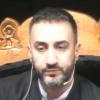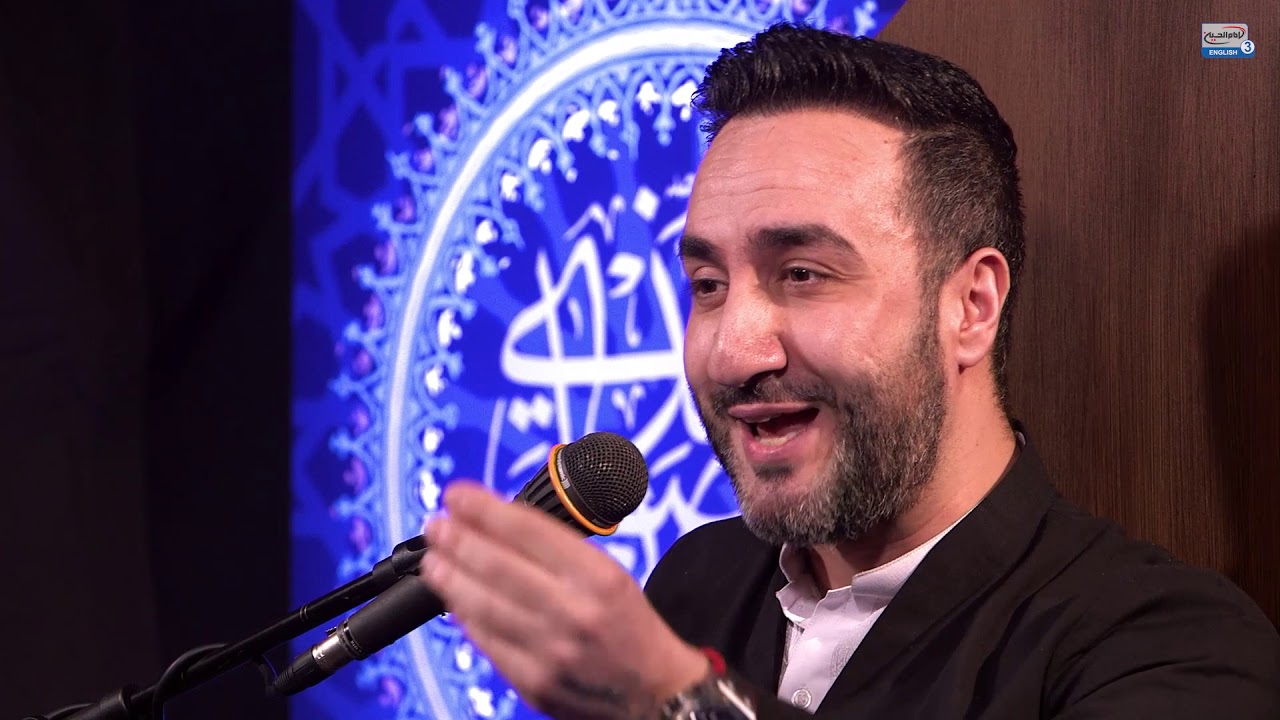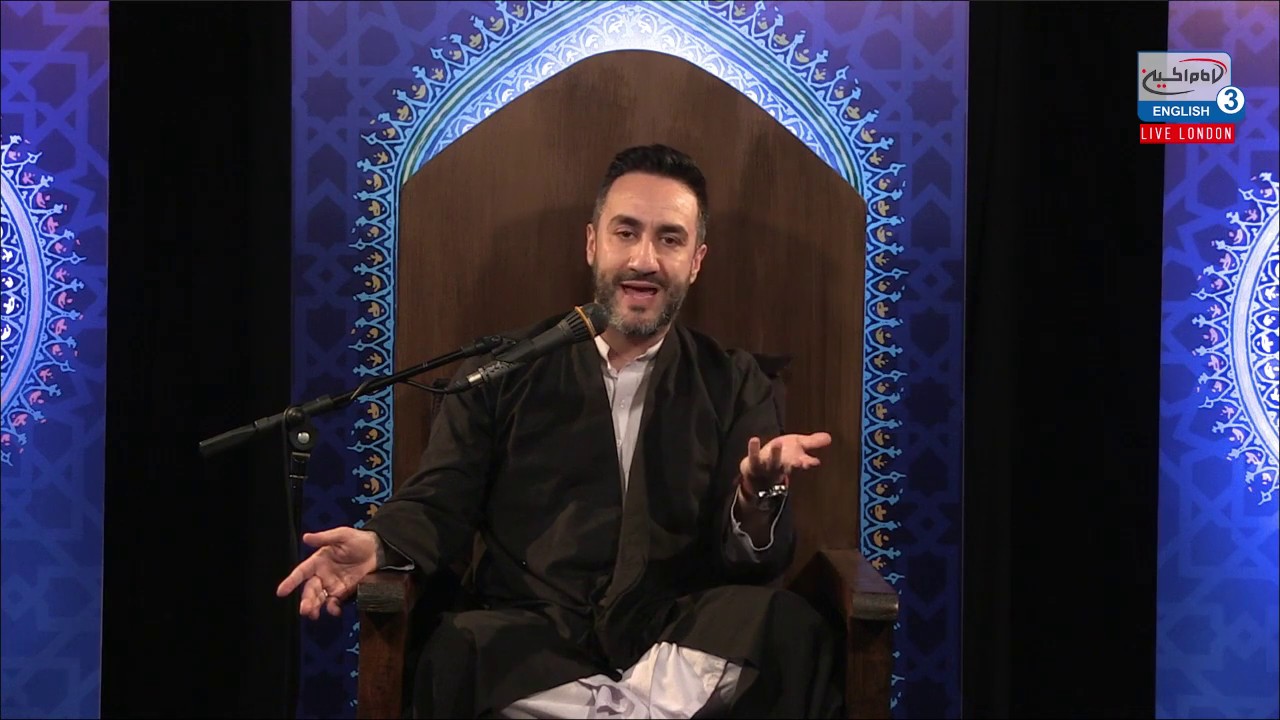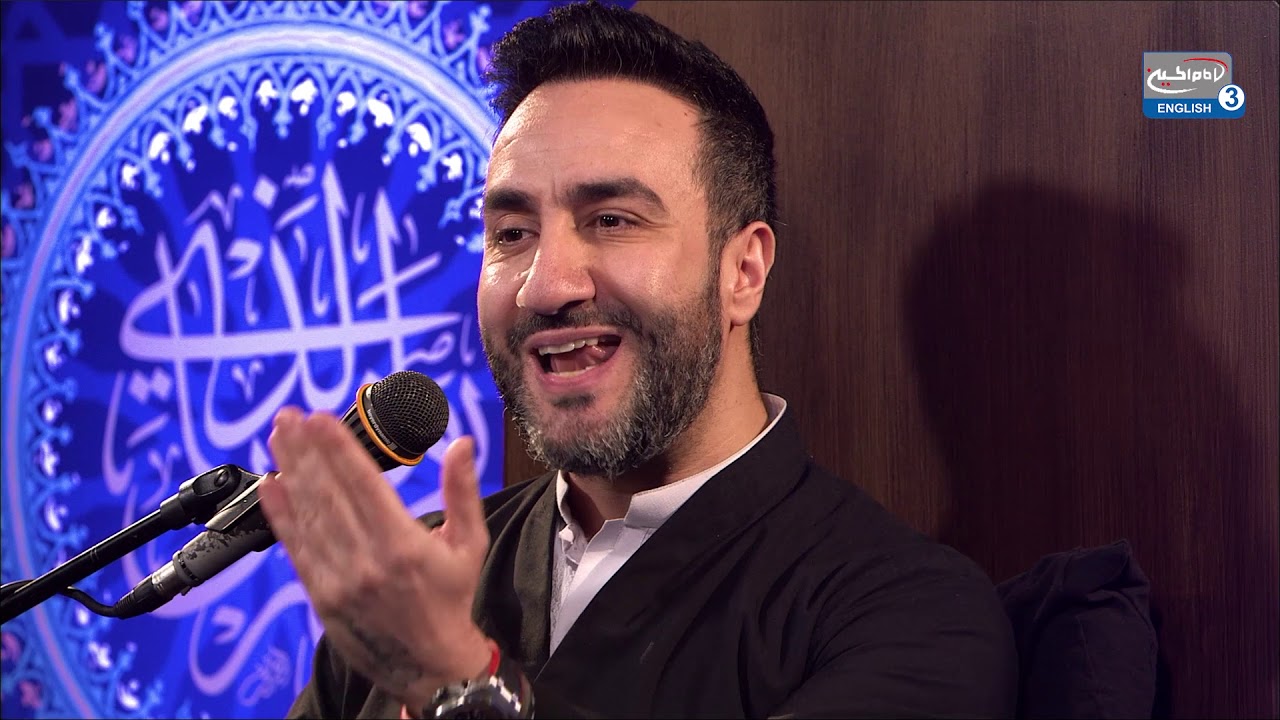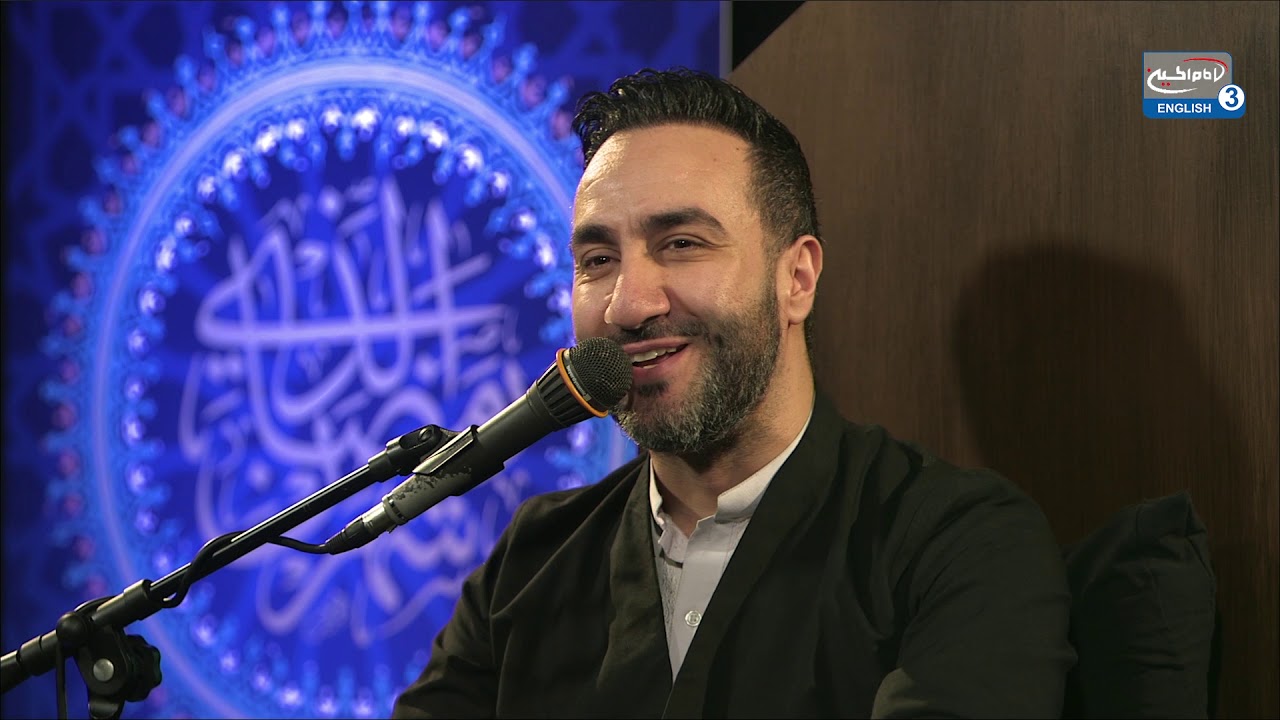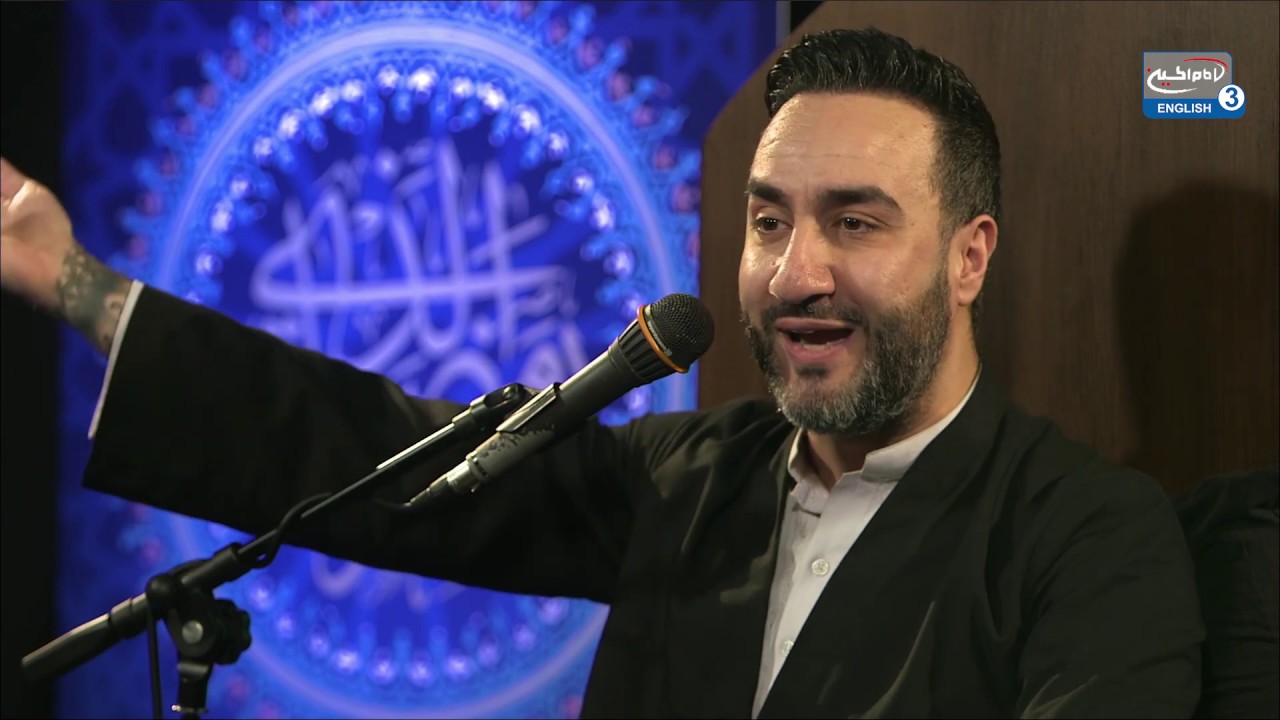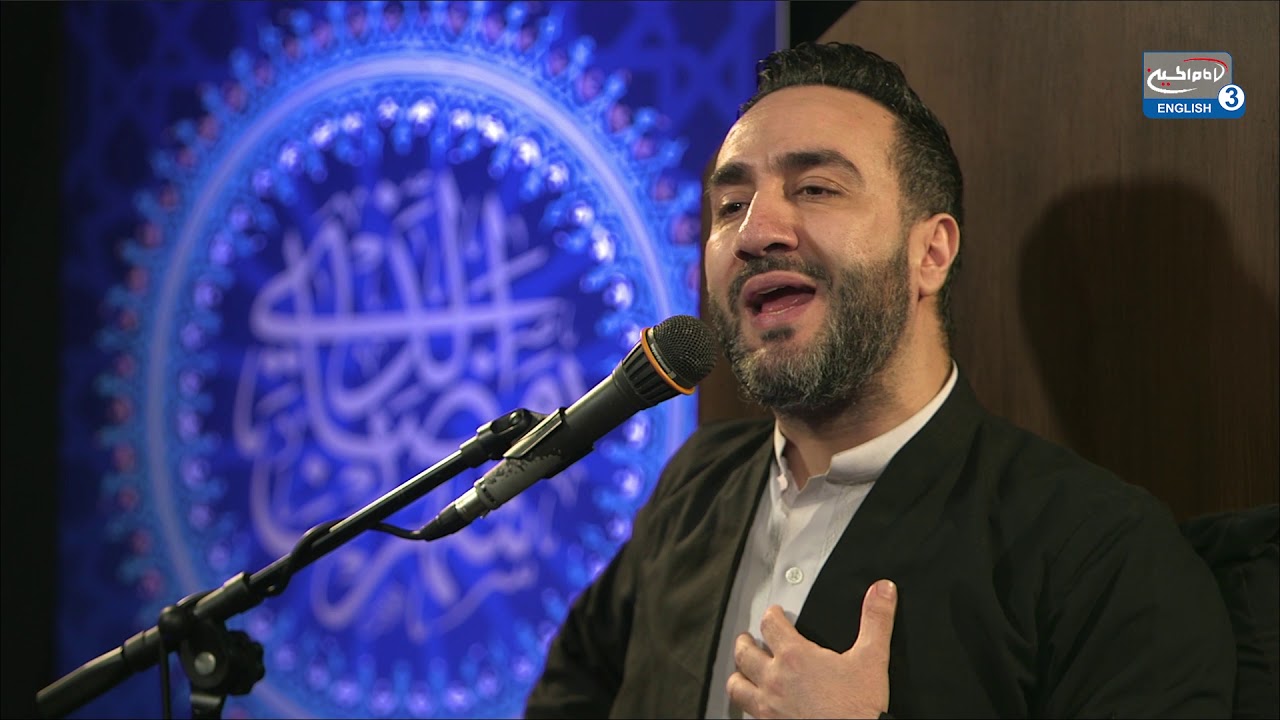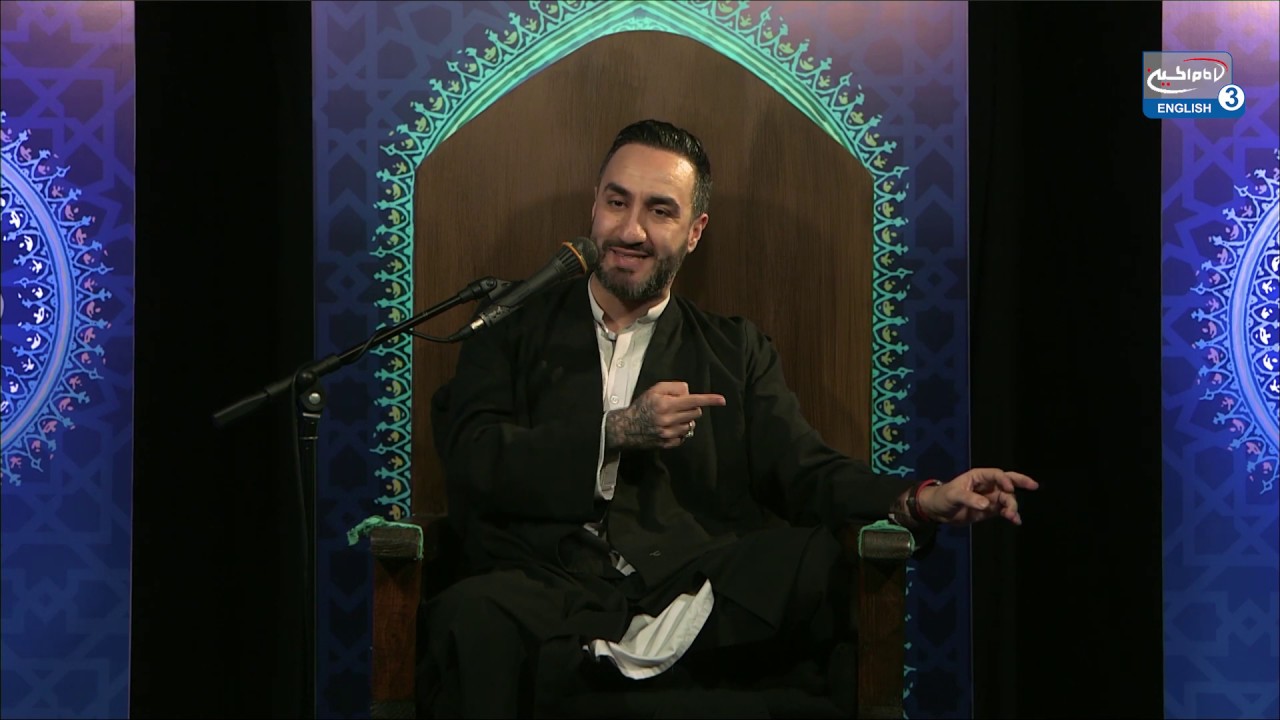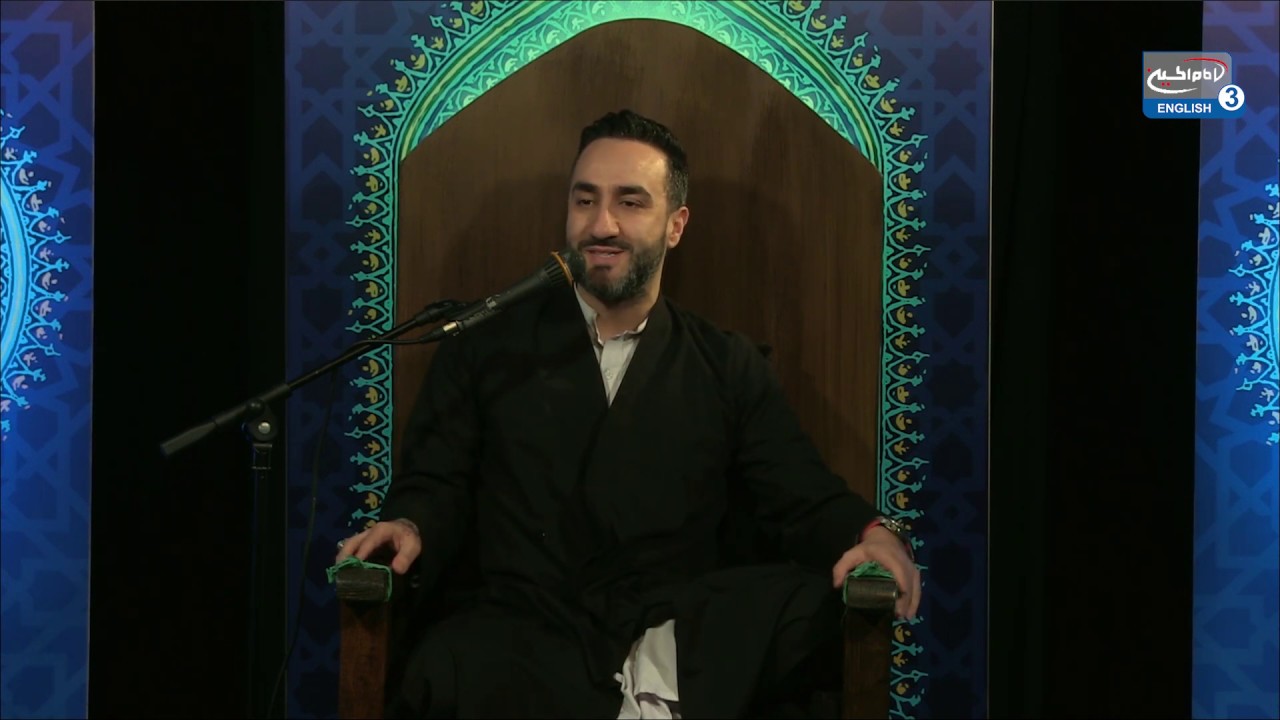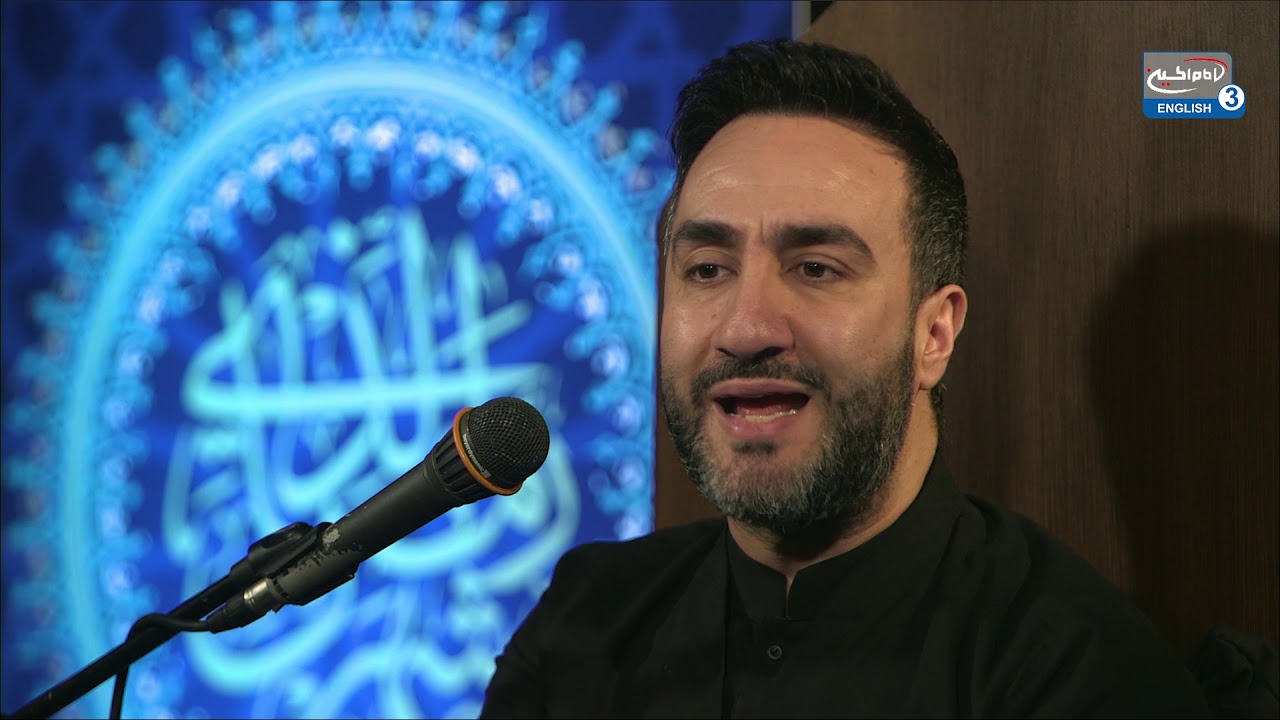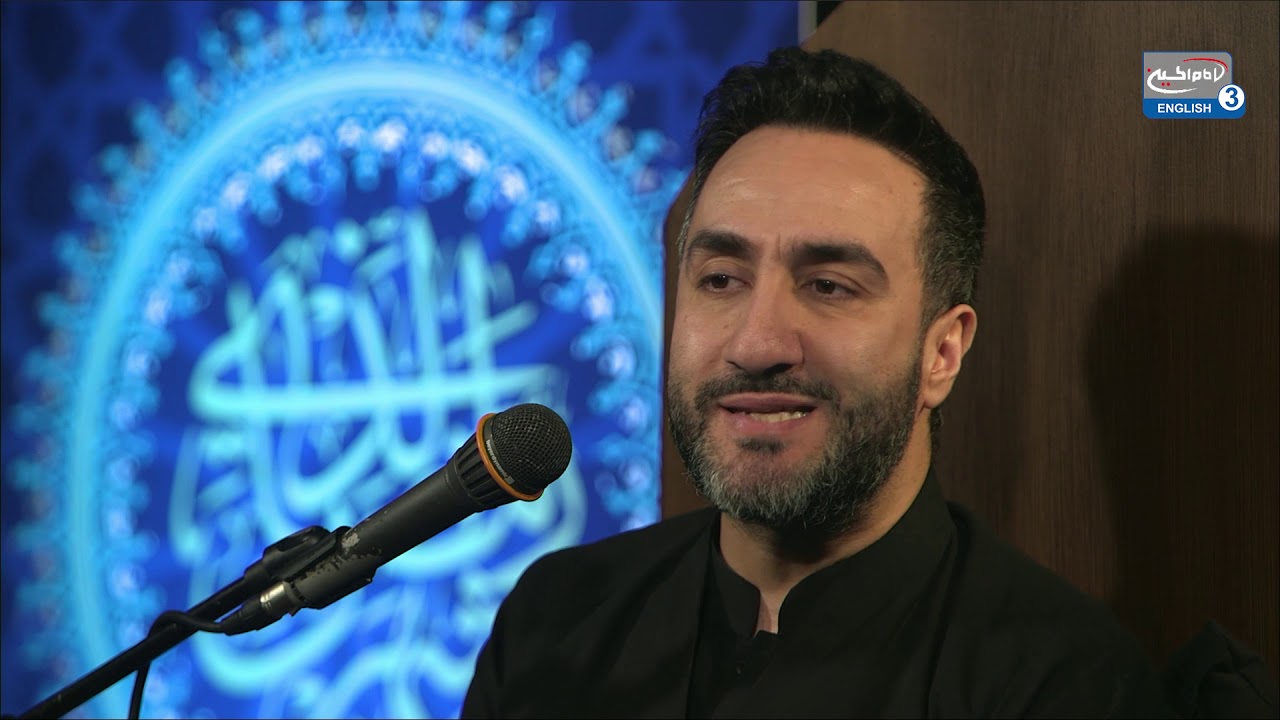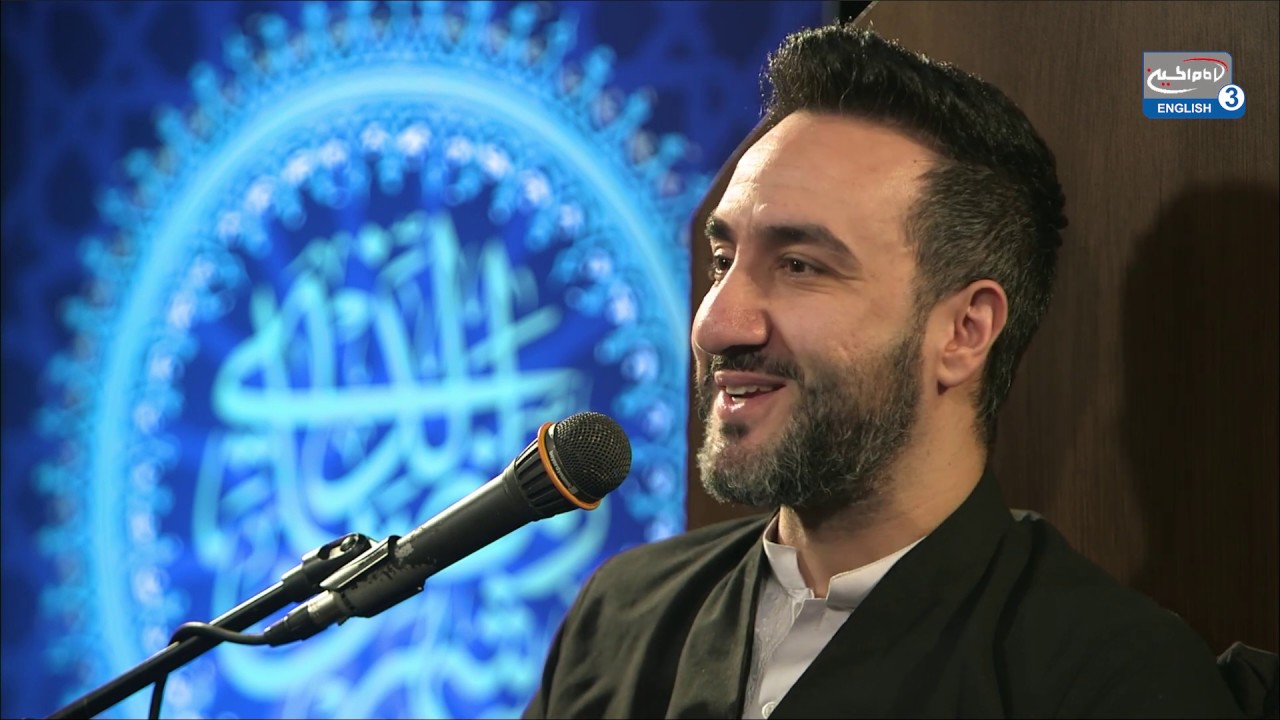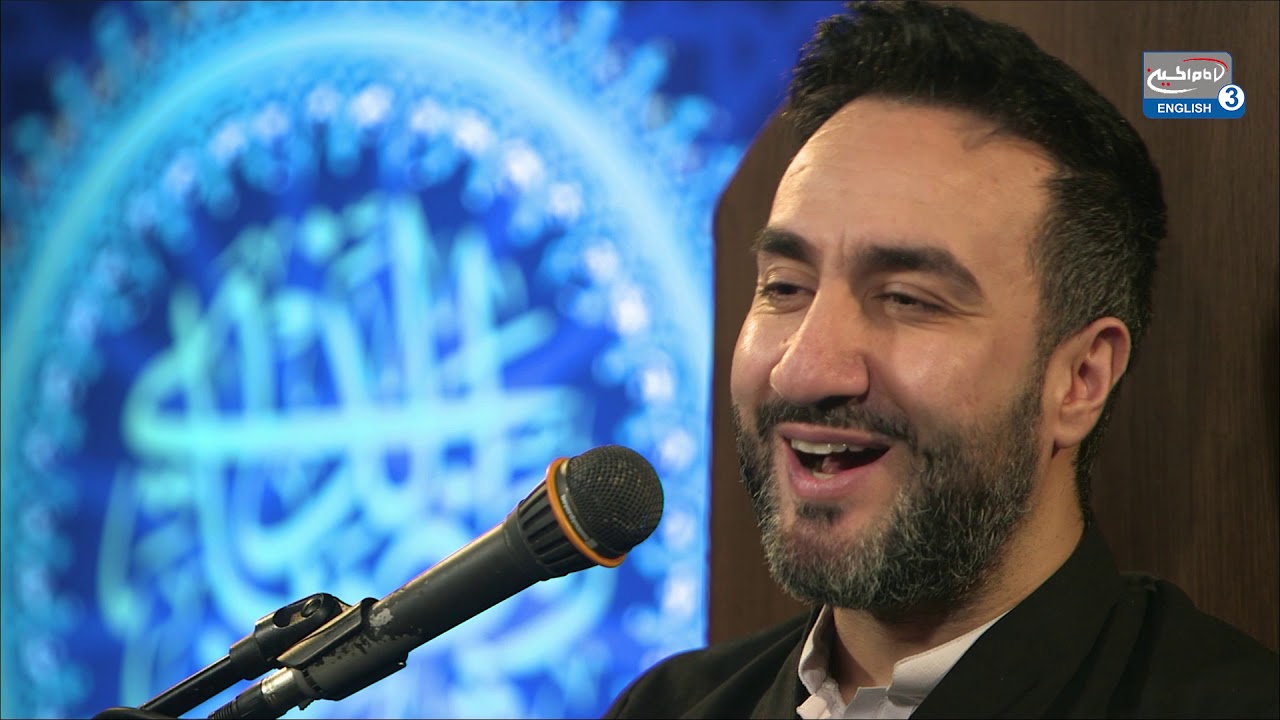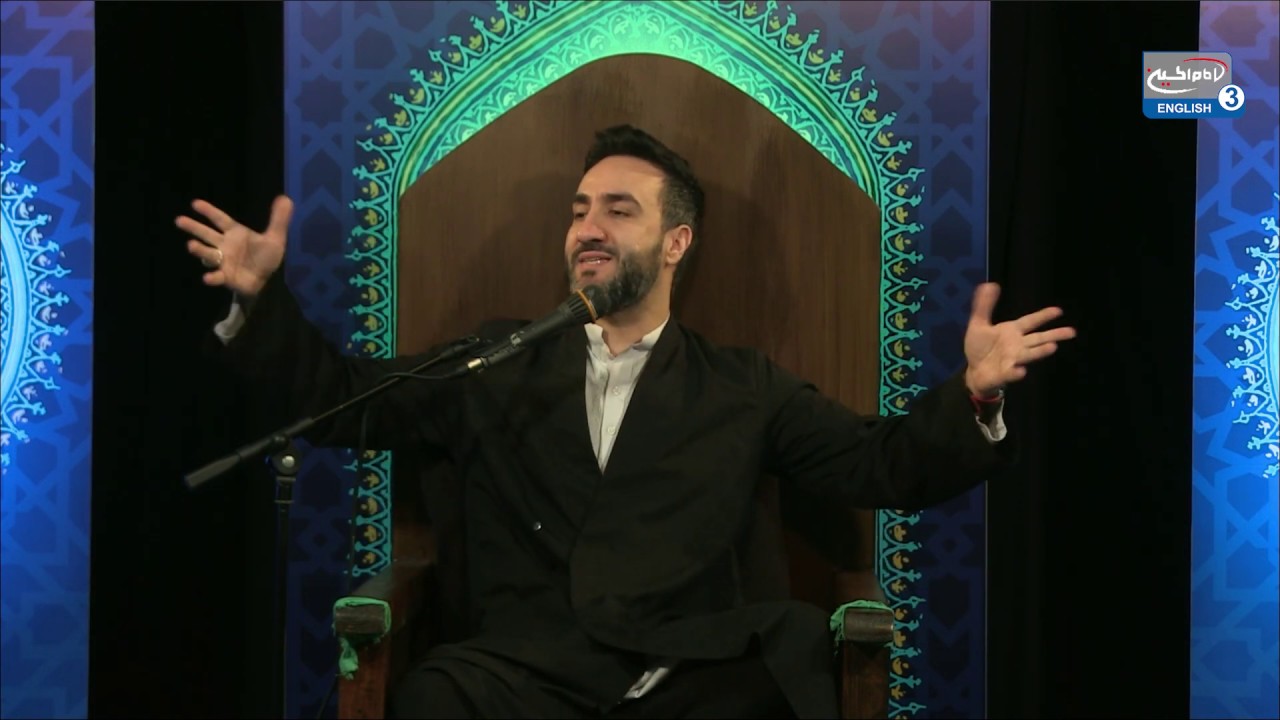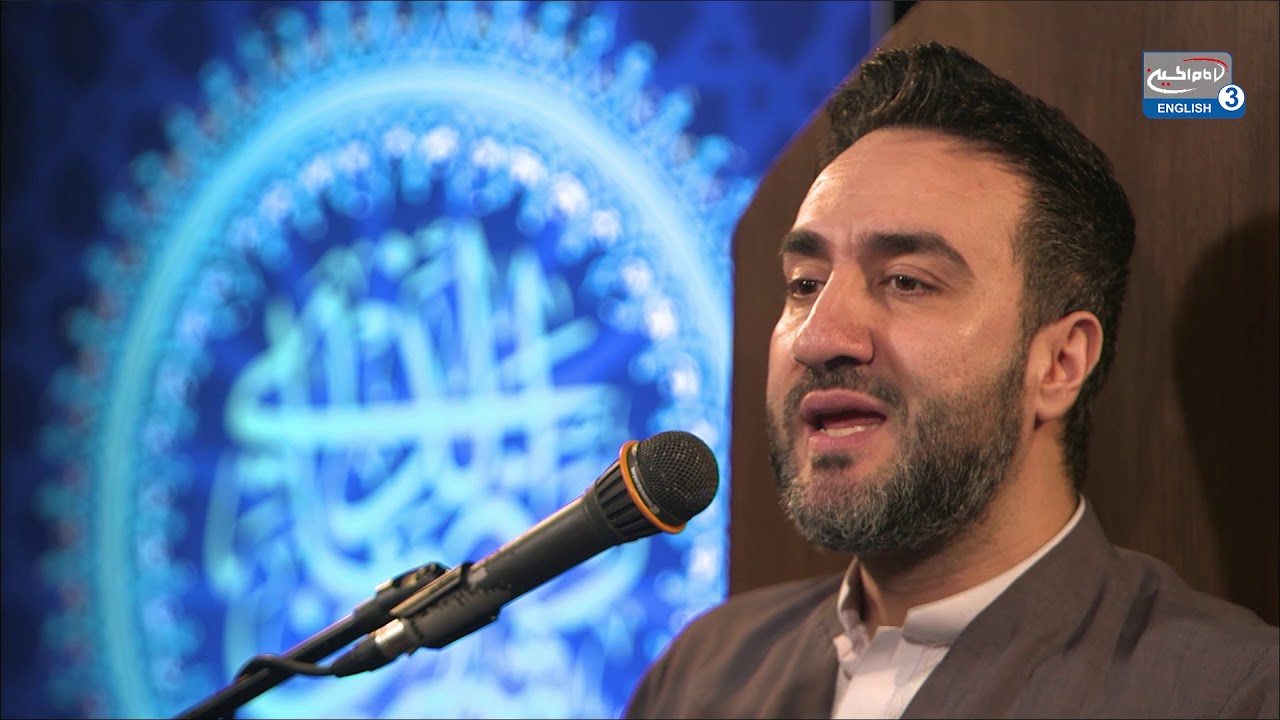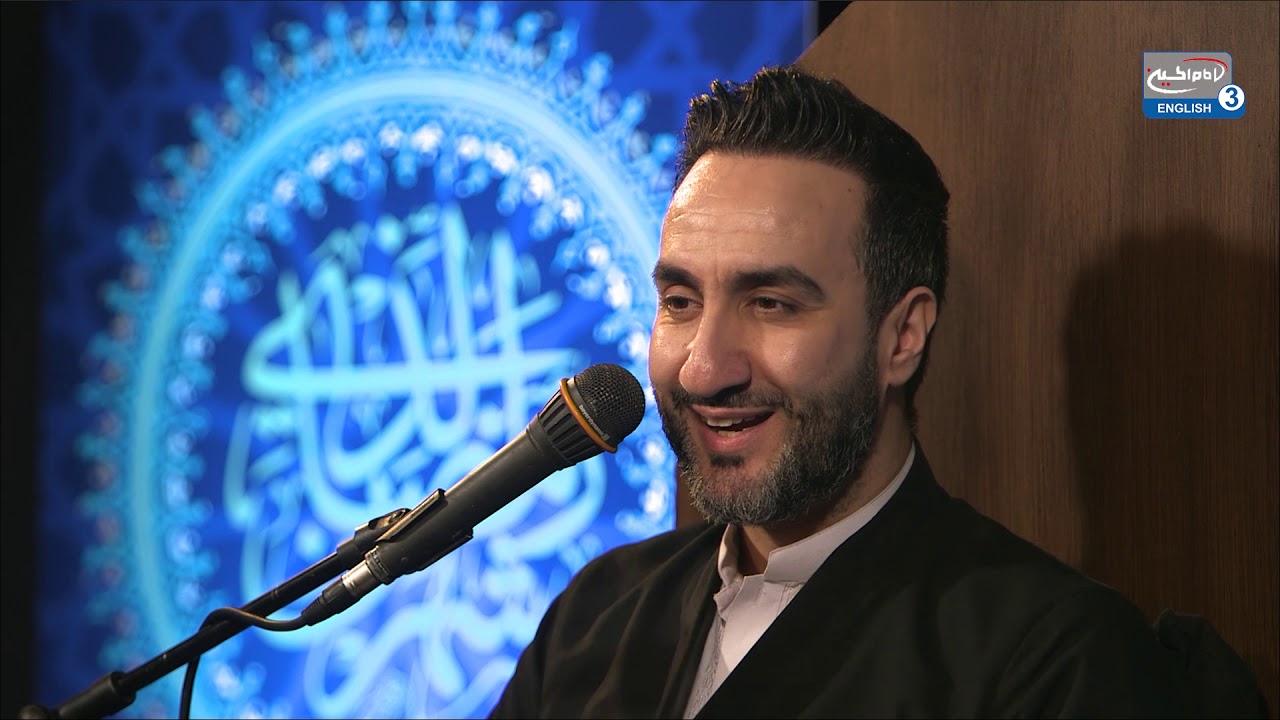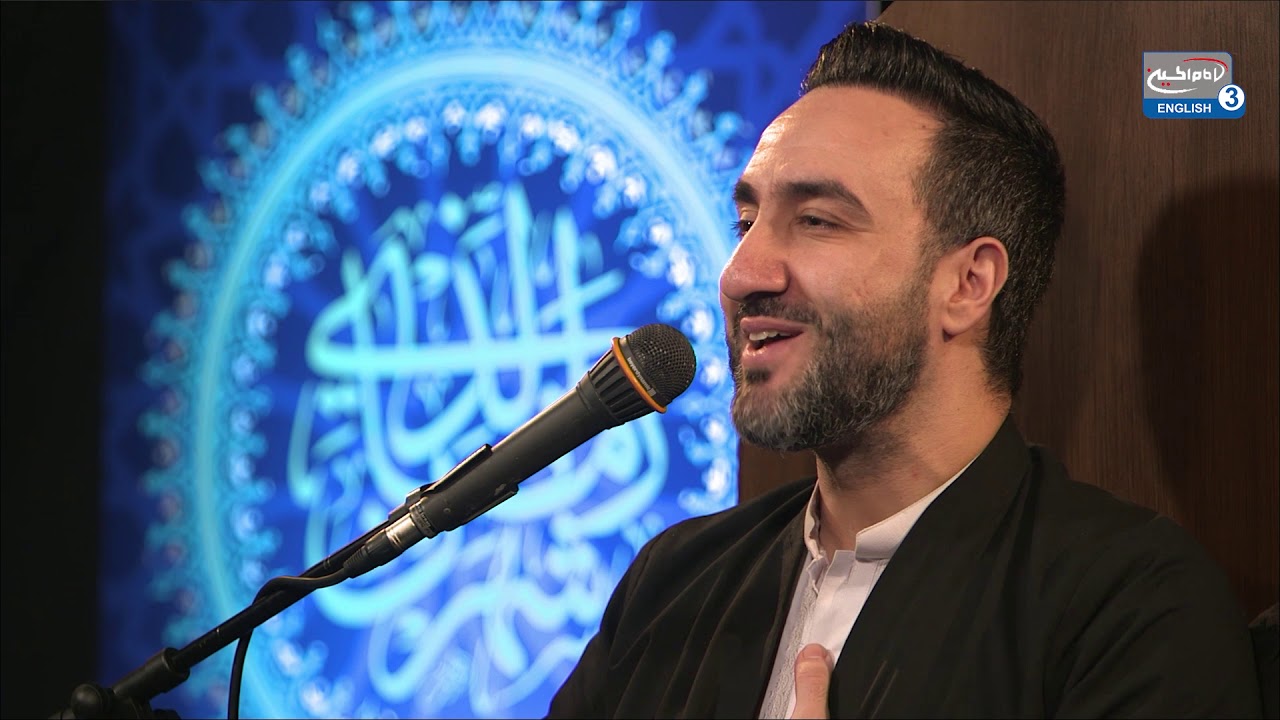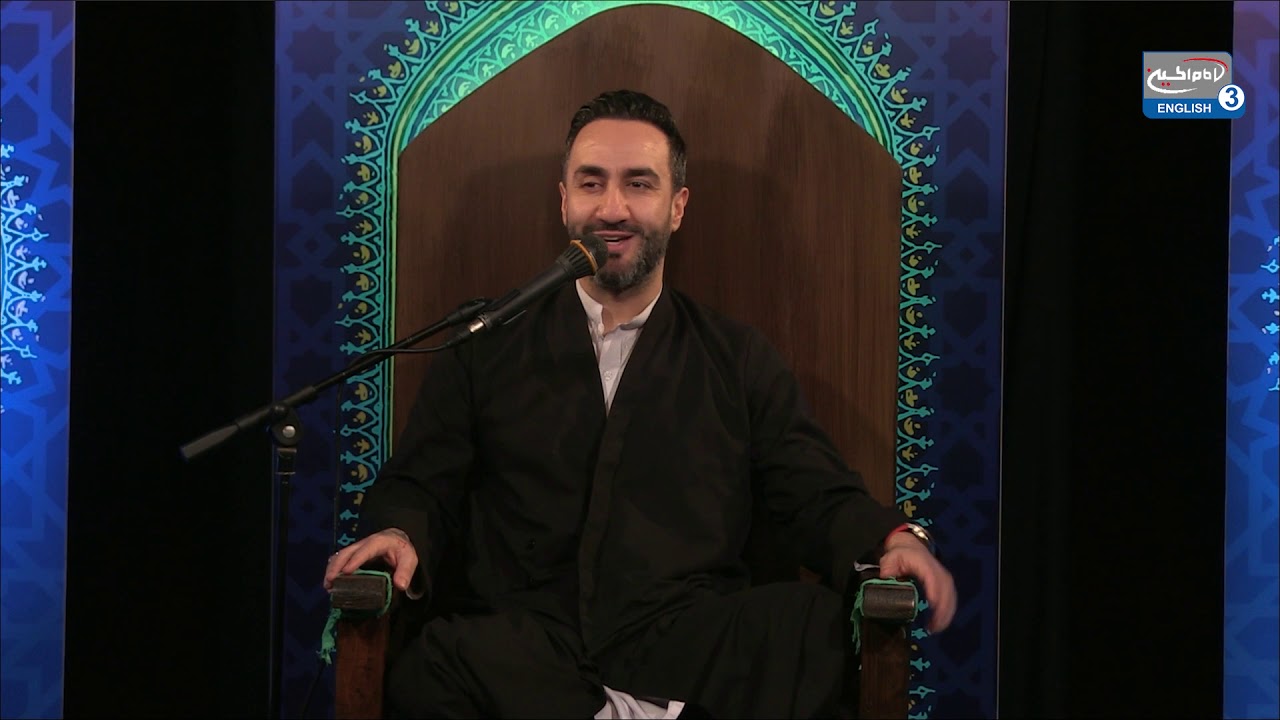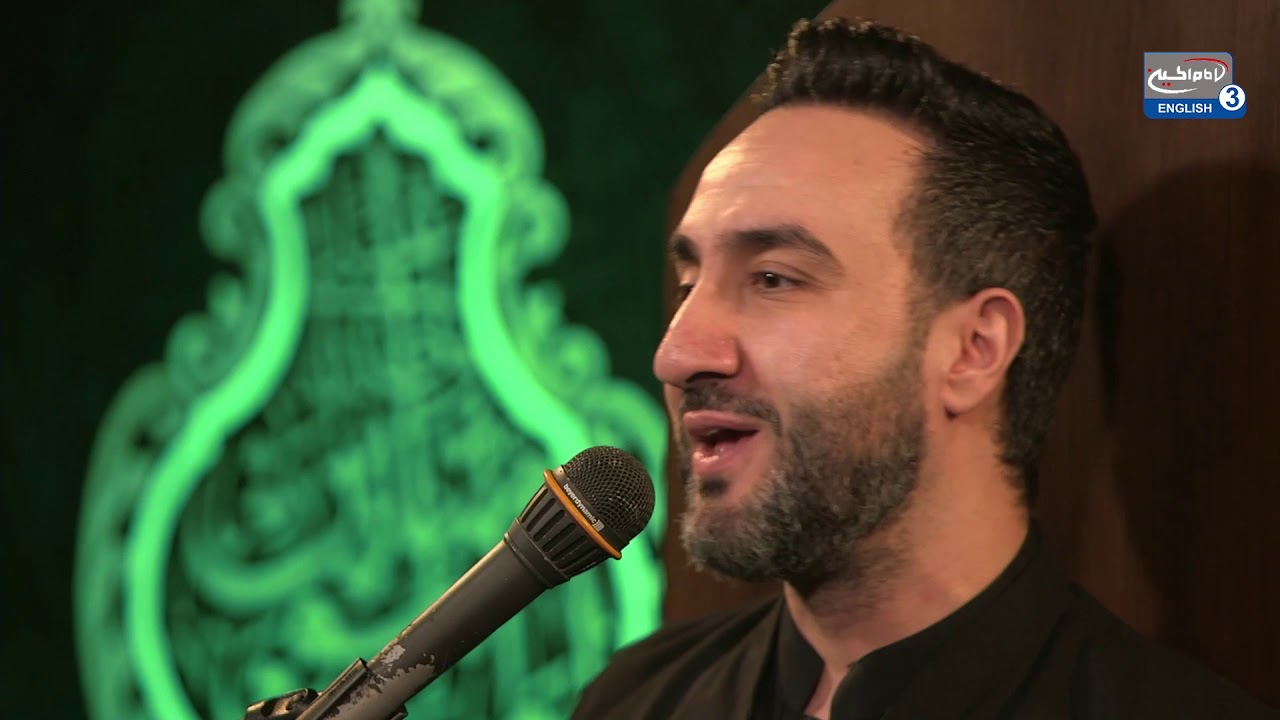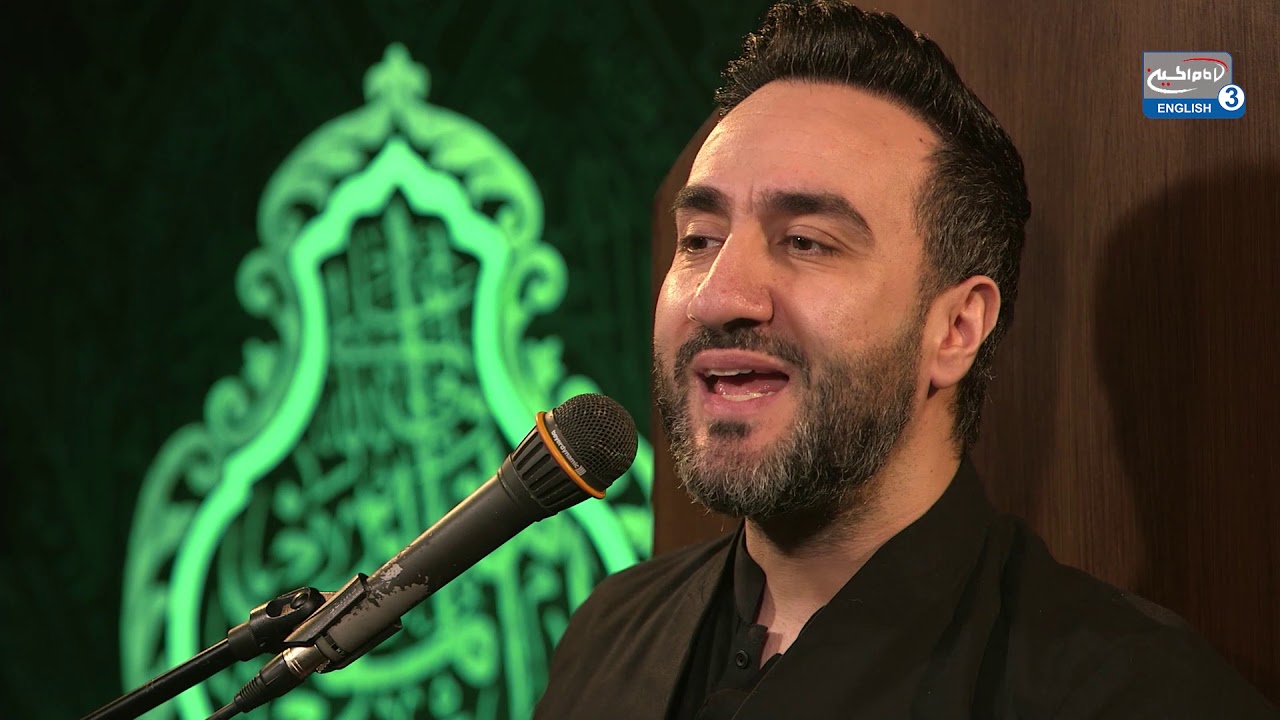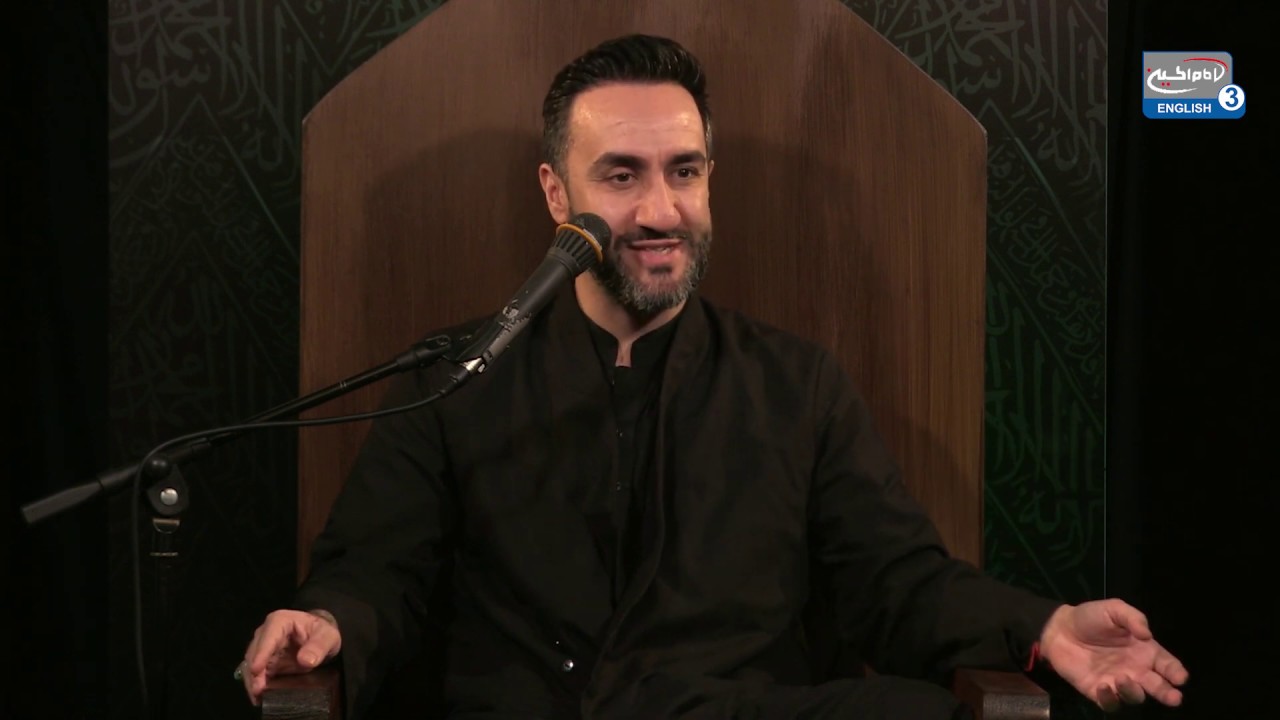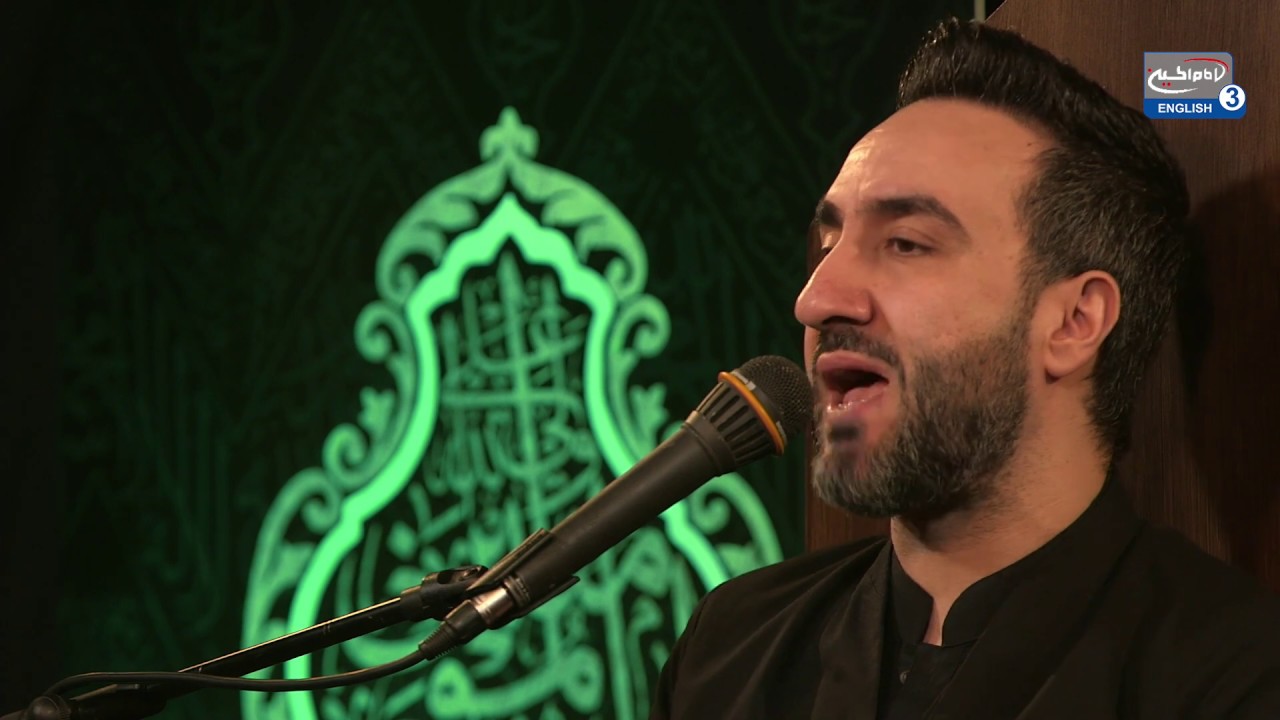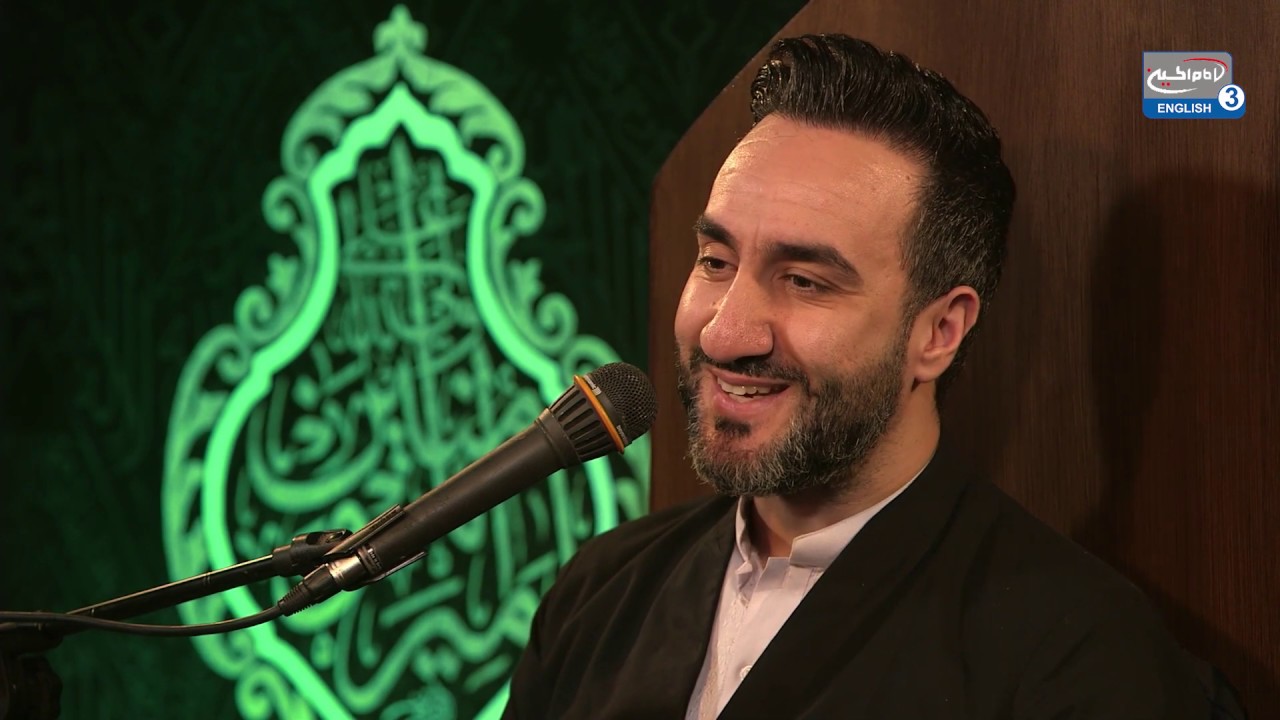Angel of Death (Malik ul-Mawt) - 4th Ramadan 1441/2020
Bismillahir Rahman nir Rahim. Al-hamdulillahi rabbil-'aalameen was-salaatu wal-salaamu 'ala sayyidina wa-'adheemina wa-habibi quloobina wa-shafi'i nufoosina Abal Qasim Muhammad. Allah-humma sallee 'ala Muhammadin wa aali Muhammad wa-'ala ahlibaytihit tayyibeeenat-taahireen wa-as haabihil-ghurril-mayameen. Al-hamdulillahi al-ladhi ja'alana min al-mutamisikeen bi wilayat Sayyidi wa Mawlay Ali ibn abi Talib. Al-hamdulillahi al-ladhi hadaana li haadha wa maakunna linahtadiya lawla an hadana Allah.
Amma ba'd yaqul Allah fi kitaabihi al-kareem, Bismillah al-Rahman al-Rahim, Qul yata waf faakum malakul-mawtil-ladhi wukkilla bikum, thumma ilaa rabbikum turja'oon.(32:11)
The discussion concerning the angel of death or malik al-mawt, no doubt, is one of the most fascinating discussions when it comes to the end of our life. Nobody has as much importance at the end of our lives like our Lord and the angel of death and the other angels created with such a responsibility and such a task by Allah, Subhanah Wa Ta'ala. Because as we know, belief in the angels is an article of faith in the religion of Islam. Every Muslim must believe in the Lord, must believe in the day of judgment, must believe in the angels, the prophets, peace be upon them, and the books that they came with.
As we see in Surah 2 verse 177, when the verse states: لَيۡسَ الۡبِرَّ اَنۡ تُوَلُّوۡا وُجُوۡهَكُمۡ قِبَلَ الۡمَشۡرِقِ وَ الۡمَغۡرِبِ وَلٰـكِنَّ الۡبِرَّ مَنۡ اٰمَنَ بِاللّٰهِ وَالۡيَوۡمِ الۡاٰخِرِ وَالۡمَلٰٓـئِکَةِ Bismillahir-Rahmanir-Rahim "Laysal birra an-tuwallu wujoohukum qibal al-mashreq wal-maghreb, wa laakinal birra man aamana bil-laahi wal-yowm il-aakher, wal malaa'ikati" "That righteousness is not that you turn your faces towards the east and the west. Rather righteousness is embodied in the belief in God, the belief in the day of judgment, as well as the belief in the angels".(2:177) Therefore, you find that from the very outset, the Qur'an wanted to highlight that the angels had a fundamental role in our understanding of the order of the universe and our understanding of the order of creation.
Hence when Allah, Subhanahu Wa Ta'ala, for example, decides to appoint Nabi Adam, 'aleyhis-salam, and announce him as his khaleefa on the earth, when in Surah 2 verse number 30 He states: Bismillahir-Rahmanir-Rahim قَالَ رَبُّكَ لِلۡمَلٰٓـئِكَةِ اِنِّىۡ جَاعِلٌ فِى الۡاَرۡضِ خَلِيۡفَةً "Qaala inee jaa'ilun fil ardhi khalifa".(2:30)
We see the response come from the malaa'ika, from the angels, and that is an introduction for us, for them and their relationship and their position with Allah, Subhanahu Wa Ta'ala.
When they said, قَالُوۡٓا اَتَجۡعَلُ فِيۡهَا مَنۡ يُّفۡسِدُ فِيۡهَا وَيَسۡفِكُ الدِّمَآءَۚ "Qaalo ataj'alu feeha man yufsidu feeha wa yasfiqud dimaa"(2:30)
Are you going to make a representative on this earth, a representative who is going to cause bloodshed or is going to cause mischief, while we, the angels, sing your blessings and worship You Oh Allah. Whatever command that You give us is a command that we make sure that we fulfill. We obey You with every order that You give us. And therefore you found that with the world of the angels, some of them, we know, and are mentioned in the Qur'an by name. There are others that we know in the world of Hadith. So, for example, those who are mentioned in the Qur'an by name, you find the Angel Gabriel, for example, Jibra'il 'aleyhis-salaam. And you find the angel, Mika'il, these are seen in certain circles as being the two highest angels of Allah, Subhanah Wa Ta'ala.
But when you came to ro'oos al-malaa'ika, they are normally four who are mentioned. Two mentioned within the Holy Qur'an, as we said, Jibra'il and Mika'il. And you have Israfil 'the blower of the trumpets' who we are going to come to very soon, for we have a number of trumpets that will be blown very shortly when it comes to our discussions, as well as 'Ezra'il. 'Ezra'il some say comes from the Hebrew. 'Ezra, meaning the servant, 'il, God. Therefore 'the servants of God', which would have been changed from Syriac into Arabic with the pronunciation that we see today of 'Ezra'il.
'Ezra'il, malik al-mawt, no doubt brings about nerves in certain circles. As in whenever you find anyone mentioning malik al-mawt, you will find that some will say, Do not talk too much about him, or that others will say, You know what, that day when I have to see malik al-mawt, I do not know what I am going to do. And the majority of time you will find that our depiction of malik al-mawt is wrong. Many times our depiction of malik al-mawt is a depiction which is extremely negative. We imagine malik al-mawt as this angel who has a very difficult demeanor, somebody who when you look at them, you get scared automatically, and wants to scare you and wants to petrify you. And as I said, there needs to be a whole reform of the way we view death as Muslims or indeed as human beings.
Because why would someone who obeys Allah, Subhanahu Wa Ta'ala, why would someone, who loves the Lord, not love those who are on the path of the Lord, not love those who are sincere in their behaviors, not love those who showed obedience to the Prophets of Allah, Subhanahu Wa Ta'ala and to the saints who Allah chose to guide us spiritually, legally and ethically. Just imagine that this is a creation of Allah, Subhanahu Wa Ta'ala, and that creation of Allah, Subhanahu Wa Ta'ala is a creation who wants to be around other creations who are lovers of God. The angels love the Prophets of Allah, Subhanahu Wa Ta'ala and the Prophets of Allah, love the angels. Malik al-mawt loves the Prophets of Allah, malik al-mawt is in awe of the Prophets of Allah, Subhanahu Wa Ta'ala. Likewise the Prophets of Allah, Subhanahu Wa Ta'ala have a love and a reverence for malik al-mawt. As in, if a Prophet of Allah, Subhanahu Wa ta'ala, does not have respect for the angel of death, then you can delete the idea that this was a Prophet. Call him a false Prophet.
And even if a Hadith indicates that a Prophet of Allah, sala-Allahu 'alaeyhi wa aalih for example, was one of those peace be upon him and his family who insulted the angel or hurt an angel, or sought to mock an angel or went as far as punching or slapping an angel, then automatically you have to begin to question where such a hadith would come from. The aim, is not to justify a tradition if it tells you such a thing - rather, I recognize these angels are obedient to my Lord. My Lord has given them positions of honor. Some I know, like Jibra'il and Mika'il from the Qur'an, others like Israfil and 'Ezra'il, others, for example, such as Raqeeb, such as 'Ateed the angel of wind, the angel of rain, the angels who look after the 'Arsh, the angels who look after the throne, the angels who come down on the night of power. These angels would not look at me if I have been obedient to Allah subhanahu wa-ta'ala, and obedient to my prophet, in a way which is cringeworthy or in a way which is frightening. Surely they would want to come to us and the first thing they would want to say to us is Salaam. As in, these who are obedient to Allah, if they see me and they love me and they do not say salaam, which is seen as one of the highest and most obligatory acts in the human world, then I have to begin to ask myself, then why would they be so highly praised if they do not like to be around the believers?
Therefore, our concept of the angel of death is extremely negative, and it may even have remnants in some cases of certain other Abrahamic faiths which looked at the angel of death in an evil way. For us, the angel of death should not be looked at in an evil way. Rather, we should look at the angel of death and look forward to seeing the angel of death, but at the same time, make sure that we have revised for the exam before he opens that paper. If I have not revised, then I am going to have a difficult time with the angel of death, because like any one, if he is going to be an embodiment of his Lord, if his Lord is angry with the hypocrites, he will be angry with the hypocrites. And if his Lord, for example, is angry with the oppressor, then he will definitely be angry when he seizes the soul of the oppressor. And if his Lord is angry with those who had riyaa', and 'ujub', and 'takabbur', ostentatiousness or self-conceit or arrogance, likewise, when he sees them, when they are dying, he is going to have that as well.
Let us tonight examine the world of the angel of death, and I would like to do this in the following stages.
Number one, who is it that seizes the souls? In one ayah of the Qur'an 'it says God', in another 'the angel of death', in another 'other angels'. Is there a contradiction in the Qur'an?
Number two, which acts are acts which can change the number on the clip board of the angel of death as to when we were going to pass away?
Number three, how can a gift or a donation or help to the poor increase our lifespan by even 60 years, by what was written for the angel of death?
Number four, does he meet the Prophets of Allah, Subhanahu Wa Ta'ala? And when they ask him, 'are you here to visit or are you here to seize', what is meant by this? And what happens if you feel his presence and you want to run away? Will he find you, wherever you are?
Number five, can he be punched by a Prophet of Allah, Subhanahu Wa Ta'ala? And if he has been punched by a Prophet, what does that say about that Prophet who is claimed to be the spokesman of Allah, Subhanahu Wa Ta'ala?
Number six and of the utmost importance: how can we ensure that our actions are actions which will ensure that when he meets us, there is a salam rather than a frightening countenance
Number seven. How did Salman al-Muhammadi go to the graveyard and talk to those who had already met the Angel of death? And how was this honor given to him?
And finally, there are some who the angel of death finds it hard to seize them and to seize their souls. For what reason? And what could arguably be his most difficult seizure?
Let us examine this and dissect the topic in complete depth.
Someone pointed out what could be a contradiction in the Qur'an, far be it from being a contradiction, but one which we need to examine. Normally, a person says that Allah, Subhanahu Wa Ta'ala has entrusted the angel of death to seize our souls.
They look at the ayah in the Qur'an in Surah 32 verse number 11, قُلۡ يَتَوَفّٰٮكُمۡ مَّلَكُ الۡمَوۡتِ الَّذِىۡ وُكِّلَ بِكُمۡ ثُمَّ اِلٰى رَبِّكُمۡ تُرۡجَعُوۡنَ "Qul yatawaf faakum malakul-mawtil-ladhi wukilla bikum, thumma ilaa rabbikum turja'oon". Say that the angel of death is the one, yatawafaakum - seizes your what? He is the one who seizes your soul. And then after that, what happens? We return to our Lord.(32:11)
Someone said, if it is the angel of death that seizes our soul, how comes in Surah 39 verse 42 of the Holy Qur'an it mentions that اَللّٰهُ يَتَوَفَّى الۡاَنۡفُسَ حِيۡنَ مَوۡتِهَا "Allahu yatawaffal anfusa heena mawtiha". It says that Allah is the one who seizes the soul when they die.(39:42) Surah 32 verse 11 said, قُلۡ يَتَوَفّٰٮكُمۡ مَّلَكُ الۡمَوۡتِ "Qul yatawaf faakum malakul-mawt". Surah 39 verse 42 said, اَللّٰهُ يَتَوَفَّى الۡاَنۡفُسَ حِيۡنَ مَوۡتِهَا "Allahu yatawaffal anfusa heena mawtiha". Allah is the one who seizes. Here it says the angel of death seizes. Then to add further, Surah 6 verse number 61 says, تَوَفَّتۡهُ رُسُلُـنَا "Tawaf fat hu rusuluna". That the one who seizes the soul is who? Is our messengers.(6:61)
So now we have what is a possible contradiction according to some, because they say, you said to me that malik al-mawt - 'Ezra'il, is the one who seizes our soul when we are dying. Our body dies and he comes and seizes that soul with a perfection, as if you are taking out hair from clay. But then someone says, hold on a minute. I see Allah, Subhanahu Wa Ta'ala saying, "Allahu yatawaffal anfusa heena mawtiha".(39:40) So hold on. Allah seizes, the angel of death, or those other angels? Who are the other angels? Because I thought malik al-mawt is one. Then who are these rusul who Allah, Subhanahu Wa Ta'ala talks about?
There is no contradiction there. What do we mean? First and foremost, there is no contradiction here because of the fact that Allah, Subhanahu Wa Ta'ala is the one who gives life and the one who takes your life. The one who causes life, causes death, creates life, creates death. Ultimately, that knowledge of when we are going to die exactly is with Allah, Subhanahu Wa Ta'ala. And that knowledge of where you are going to die is with Allah, Subhanahu Wa Ta'ala. But Allah, Subhanahu Wa Ta'ala gives the knowledge of people's deaths and the permission to seize their souls with malik al-mawt.
Someone says, Well, how about those other rusul? There are certain rusul who are the helpers, the angels who are helpers of malik al-mawt. They say that malik al-mawt is the one who goes specifically, according to some opinions, he goes specifically to seize the souls of who? To seize the souls of, for example, the Prophets of Allah, Subhanahu Wa Ta'ala. Or he is the one who goes to seize the souls of the Imams of Ahlulbayt, salawut-Allah wa-salamuhum 'aleyhim. So that is his role. Someone says, well, how about those other angels? Those other angels are the helpers. Now, if you imagine the hierarchy of this structure. Al-amthila tudhrab wa-la toqaas. When I give these examples, I do not want it measured exactly. You imagine that Allah, Subhanahu Wa Ta'ala is the head, the CEO, and that he has a vice president, for example, who does a lot of the management, and that is 'Ezra'il. Of course, Jibra'il, Mikha'il, others have their roles. But in terms of death, 'Ezra'il, he is the one who oversees operations. And then he employs rusul. Some of these rusul are those who when they come and seize you, they will seize your soul violently. As the Qur'an says, Bismillahir-Rahmanir-Rahim وَالنّٰزِعٰتِ غَرۡقًا "Wan naazi'aati gharqa". (79:1) And some of those rusul are those who come and seize your soul softly, without too much pain, gently as the Qur'an says وَّالنّٰشِطٰتِ نَشۡطًا "Wan naashitaati nashta".(79:2)
So therefore, was there a contradiction? No, Allah, Subhanahu Wa Ta'ala ultimately has the exact knowledge of when we are going to die. Someone says, Well, how about on the clipboard of the angel of death? Does it say exactly when we are going to die? He has an idea, but that idea is open to being erased. In which concept?
In the concept of Badaa, when the Qur'an Surah 13 verse 39 says: Bismillah al-Rahman al-Rahim يَمۡحُوۡا اللّٰهُ مَا يَشَآءُ وَيُثۡبِتُ ۖ ۚ وَعِنۡدَهٗۤ اُمُّ الۡكِتٰبِ "Yamhullah ma yashaa'a wa yuthbit wa 'indahu ummul kitab". Allah, Subhanahu Wa Ta'ala erases what He wants, cements what He wants, writes what He wants. (13:39) If Allah, Subhanahu Wa Ta'ala wants to erase the number which is written on the clipboard of the angel of death, that number which is written, for example, let us say Syed Ammar Nakshawani dies at the age of 85 InshaAllah, it says that number next to my name. Then that number cannot easily be erased. Someone says, but how?
The Qur'an said, "Yamhullah ma yashaa'a wa yuthbit". Allah erases what He wants and He is able to write what He wants. (13:39) "Wa 'indahu ummul kitab". Ultimately, all knowledge is with Allah, Subhanahu Wa Ta'ala, but the knowledge that changes is the knowledge of the angel of death.
You see my brothers and sisters, if I said the angel of death has the same knowledge of Allah, Subhanahu Wa Ta'ala when it comes to when everyone dies, then I should be worshipping the angel of death as well. The angel of death's knowledge is upon what Allah decides to give him and what Allah decides to change as well. Therefore, if Allah, Subhanahu Wa Ta'ala decides that on my number, next to my name, malik al-mawt, it is written for him, Syed Ammar Nakshawani, 85 years of age. There are certain acts which can make that number increase by up to thirty years, and there are certain acts that can make that number decrease by twenty years. What do we mean?
Amongst the acts, for example, where your age can increase from what is written with the angel of death is silat ar-rahem. Silat ar-rahem enjoining our relations with our womb relatives. One of the biggest tests that any of us will face is having a difficult relative. How do we maintain relations with them? Some are obstinate, some are arrogant, some are difficult to deal with. Some only are using us and have a relationship with us for benefits. So you find that some of us, we want to cut off those relations with our relatives. Cut them off, up to you. But that age from what is written, may decrease. Some of us know, we say that maybe we will enjoin relations with our relatives. We will go and sit with them, even in this holy month of Ramadan, whatsapp a relative you have not spoken to for ages, or send a message to a relative you feel has wronged you. Yes, they may have wronged me. But Allah, Subhanahu Wa Ta'ala is telling me that amongst the benefits of silat ar-rahem is what? That the written portion for me is something which is delayed and an increase in my age occurs. Yes, that increase in my age can occur by up to twenty years, even thirty years.
I will never forget Imam al-Kadhim, salawaatullah wa salamahu 'aleyh. Imam had a companion by the name of Shu'aib. He said to him, Shu'aib, there is someone coming from Maghreb, from Morocco, his name is Ya'qoob. I want you to meet him by the Kaa'ba. Shu'aib said I went to the Kaa'ba and I was standing there and this person came towards me looking at me and he said to me, 'You must be Shu'aib'. He said to him, 'How do you know'? He said, 'In my dream I was told that I will be guided towards you'. Shu'aib said then, 'Very well, come with me'. So they went all of them together to who? They went to the Imam, sat with the Imam. He said to him, 'Ya'qoob, on your way to Mecca, visiting the Kaa'ba, you and your brother had a quarrel. And that quarrel is not one befitting of the lovers of Ahlulbayt 'aleyhi as-salam, and of the lovers of God. I expected more from you'. He said, 'Therefore, because of that, death will come to one of you very soon'. He said, 'Tell me more Oh Imam'. Imam said to him, 'However, with you, because you patched up your relation, you patched up a relation with an aunt, that patching up of that relationship with your aunt means that Allah, Subhanahu Wa Ta'ala has decided to increase your life by 20 years from what was written'.
Someone says, What? Allah's 'ilm changed? Allah therefore didn't know. No, Allah knows when this person is going to die. The same way your Lord knew when he told Abraham, Sacrifice your son. He knew all along that he would sacrifice the sheep eventually. Ibrahim thought it was the son. The same way your Lord knew that when Moses came to collect the alwaah. When he came to collect them, Allah, Subhanahu Wa Ta'ala knew very well that Moses thinks he is going to be here for 30 days. I know he is going to be here for 40, but We will increase it by ten after the thirty is over. Likewise, Allah already knew that this Ya'qoob from Morocco will be somebody whose life will increase by up to 20 years. But he said the other one is going to pass away soon. The other one's age, by the way, may have been written originally on the clipboard of the angel of death much later, but because he broke relations with the family members. When I hear that people who go to the same mosque, sisters do not speak to each other. These people sit in the mosque. Listen to majalis, go to salat al-Jumm'a, go on Ziyarah, but they don't realize that their death is coming nearer and nearer when they break relations with one another. No one is saying be lovey dovey with each other. But the basic minimum, at least 'As salaamu aleikum' between you. That should never leave any of us. That should always be part and parcel of our relations, so that that mercy is not cut from us on the day of judgment.
Therefore, you found the next year when Ya'qoob came back to Hajj, he saw Imam al-Kadhim, 'aleyhis-salaam, and he said to Imam, Imam - 'my brother passed away shortly after what you had said'. Yes. So you found, therefore, that there are certain acts here which highlight the central debate. Are our acts predestined? Do we have complete free will or is it an amur that is bayn amrayn, a manzilla between manzillatayn. What is it exactly?
You find that no - Allah, Subhanahu Wa Ta'ala has told us that, look it is your life. You send a text message or a WhatsApp message to a relative, even if they come back to you rudely, even if they don't even respond arrogantly. Do not worry about people. The human being will keep surprising you, especially those who you have been good to. "Itaqi sharr man ahsanta ileyh", always beware of the evil of those you have been good to, Amir al-mu'mineen says, but it does not matter. You do it for the sake of Allah, Subhanahu Wa Ta'ala and you will see that now it's in your hands. Malik al-mawt has on his clipboard that you will die at fifty. You have done that act of silat ar-rahm. It will change to seventy. He just waits for the commands from Allah, Subhanahu Wa Ta'ala. Allah, Subhanahu Wa Ta'ala gives him those commands. Malik al-mawt goes ahead, or the rusul go ahead.
And don't think malik al-mawt - there is a tradition that says that malik al-mawt doesn't necessarily want to do this at the beginning. He will obey Allah subhanahu wa ta'ala, but he also asks can I have another role. Why? He said because I am going to end up maybe taking fathers away from their family and there are kids there and there are orphans there. This was right at the beginning, when Allah, Subhanahu Wa Ta'ala said to him that you are going to be the angel of death. So one of the anecdotal traditions that he at the beginning said, Ya Allah, could I maybe do something else? Because I am going to bring pain to that family for example, when I take the soul away, say, from their father and they have children. And Allah told him, Do not worry, they will be more focused on the cause of the death than they are on you seizing the soul. And it is true. When someone now dies of cancer, you don't say 'The angel of death must have taken them'. No, you say 'Did you hear they died of cancer. They were unwell.' When someone dies in a car crash, you don't hear people saying, 'You know what, the angel of death was at our house and he must have taken that person at that moment.' No, you hear people turning around and saying that, 'You know what? That person died in a car crash.'
So even Allah, Subhanahu Wa Ta'ala, as part of His mercy for the angel of death was that people wouldn't talk about him too often. Rather, you would find that they talk about the causes, because the angel of death - don't imagine he is an angel that has no respect towards the people. But the reality is that he has to go to their houses. How many times does he go? Maybe five times a day, the angel of death has been lingering, or the rusul have been lingering around our houses.
Because some of us, there is a person who once said that why doesn't the angel of death give us a warning before he comes. At least if he gives us a warning like it is mentioned, for example, with some of the greatest who lived on this earth, that he took their permission, for example, why does not he give us a warning?
Firstly, not all of those who were great necessarily had a warning before he came. Sulayman 'aleyhi as-salam one day is looking at his vast kingdom, the next moment he passed away. When the angel of death had come towards him and told him that we have to go. People imagine that there has to be a warning that 'I am going to be here in about seven days Nabi Sulayman'? No. On the contrary, the time has come. We must leave.
But you also find at the same time the angel of death has warned us. When someone in your family dies, that is not a warning from the angel of death? You saw someone from your own family die or one of your beloved die, one of your best mates die. That wasn't enough for you to stop the haram that you are doing? Don't say the angel of death has not warned me. Malik al-mawt has warned you many times. He has shown you deaths in front of you. That's the biggest warning that you can have. Are you seriously telling me that when you have seen a friend or a family member die of a disease like cancer, or die in a car crash, or die all of a sudden even in their sleep, that wasn't enough for you to change?
So what is left, my dear brothers and sisters? What is left? I honestly ask you that you are telling me the angel of death could at least tell me before he comes. The angel of death will turn around to you and say, Hold on a minute. I have shown you all of these deaths and still arrogantly you think that there is not a moment in the five times that I visit you a day that I am not going to come and take your soul? No, I will. I will come and take it, but be ready because I want to have salam with you. I want to be at peace with you. I want have a good convo with you. I want to take you to Muhammad and aali Muhammad - salawatullahi wa salamuhu 'aleyh. I want you to go and chill with them, go couch with them, go relax with them. Do not let me come to you and you are looking at them thinking, Well, what do I say to them, why I did not do this, why I postponed this, why I was late with this.
That is why, this holy month of Ramadan, make that resolution. How people have New Year's resolution, make that resolution. You know what? This month of Ramadan, one thing which I have been postponing of the obligatory acts, I am going to promise and make a resolution to my Lord, make a vow to my Lord, that I am going to work on them or that I am going to change them. Don't worry about what everyone else thinks. Or the peer pressure. Believe you me, they will have their qabr, (and we are coming to the nights of the grave very shortly) and you will have your qabr as well.
Therefore, that malik al-mawt and the other rusul, do they visit the Prophets of Allah? They do, and when they visit the Prophets of Allah, Subhanahu Wa Ta'ala, the Prophets of Allah, when they see them, they ask them a question, 'have you come to visit or have you come to seize? Because if you have come to visit, then tell me what's up. Tell me what is happening. But if you have come to seize, then this is the moment. That I have got to go'. So you found that sometimes the angel of death will come and say to them, 'I have just come to visit' and tell that Prophet that, 'you see that young man over there, ten days he is gone. He has got ten days left'. Nabi Dawood 'aleyhi al-salam and Nabi Sulayman have two wonderful stories where malik al-mawt has come in their gatherings. When the angel of death would come, he would say to Nabi Dawood, 'you see the young one there? Ten days and he is gone. He is a goner, he is finished. He is going to be taken. We will seize his soul'.
16 days have passed, that young man was still around. Nabi Dawood 'aleyhis-salam saw malik al-mawt. 'Have you come to visit or have you come to seize'? He said, 'No I have come to visit'. He said to him, 'The young man'? He said, 'The young man? The young man'. He said, 'Oh Prophet of Allah. That young man was a few days away from dying. He had nothing to eat and nothing to drink. And there was nothing even available for him. His time had virtually come. He had to go'. He said, 'while he was walking around looking for some food with the six odd dirhams that he had'. He said, 'he looked at a person in front of him and said to him, I beg you, give me something for I have nothing to eat. I have nothing to drink'. He said 'he took it out straightaway and gave him'. My lord, looked towards me and said to me, 'for that one act that that 20 year old young man performed, because he gave to others when he himself was in need, change the date of his death from the age of 20 to the age of 80', 60 year increase. Silat ar-rahm - we said, how long? Ziyada fil 'umr is how long? 20 years. But when it came to helping the poor, how many are there in London today from the poor and the homeless, who now face even more difficult times than us who are in quarantine but may be living in nice houses, may be living in comfortable abodes. How many are there in African countries who cannot even afford medical equipment? How many African countries do not even have ventilators? They do not even have hospital equipment. Give to them and see that malik al-mawt himself will put his hand up and say, 'Listen, my Lord said to me, no, you do not go and take that person now'.
Likewise what else? Obedience to the parents. That is fundamental. There are some today in our youth, you see them with their parents, loud, obnoxious, raising their voice, smashing doors as they reply back to their parents, using their father simply as a cash machine and their mother as a slave. Nothing more, no interaction, no humility. That person has to realize that one of the things that postpones the angel of death coming upon you is what? The postponement of the angel of death coming upon you is that you ensure that you are able at that moment to be of those who is obedient to their parents. When the Qur'an said that do not even say 'uffin', it was saying to us that uttering a 'tut' or other small noises when your mother or your father requests something from you is the highest sign of rudeness. And even if sometimes you feel that your parents, for example, are parents who are backwards, they are from a different generation, they do not appreciate your cool modern style, then try and be patient with them. Be humble with that. When you have your parents in your life, that is a rizq from Allah, Subhanahu Wa Ta'ala. And sometimes we do not realize that.
So when the Holy Prophet peace be upon him and his family, sees the angel of death one day and the question is asked, 'Are you here to visit or are you here to seize'? And he says to him, he says, 'No, no. I am here to tell you that I was going to go and take the soul of one of the people, but because of their obedience and their respect to their parents, Allah said give them more time'.
So you had Nabi Dawood 'aleyhis-salam from one angle, the Holy Prophet, peace be upon him from another angle. And you had Nabi Sulayman 'aleyhis-salam. Nabi Sulayman 'aleyhis-salam sitting in a gathering, one day someone was sitting in the gathering of Sulayman. Remember Nabi Sulayman, the Jinn were his servants. The wind was his servant. He could speak to the animals. Solomon and David occupy a prominent position in the religion of Islam. Sulayman 'aleyhis-salam, while he was sitting down, narration mentions that someone was sitting in the company of Sulayman and he came to me and said, 'Nabi Sulayman, who is that person over there? Because he is staring at me with a stare which I just am not comfortable with. Prophet of God, you know, just tell me, who is that'? And then Nabi Sulayman 'aleyhis-salam said, 'Look, do not worry, it is okay'. And he said, 'No Prophet of God, I beg you tell me that person who was there is now gone. I beg you, tell me who that was, because he was giving me some looks. You know what? I never want to look at that person's face ever again in my life'.
Nabi Sulayman said that, 'that was the angel of death'. An angel of death can come in the form of a human. Angels like Jibra'il came, for example, in the form of a human being. So he looked at Nabi Sulayman and said, 'Nabi Sulayman, you know how the wind is your servant'? He is like, 'yep'. 'And so, like, I can literally fly anywhere now'? He said, 'Yes'. He said, 'I want to go straight to India'. Now why that guy chose India, I do not know. But he said India, straight away he was gone. Nabi Sulayman, 'aleyhis-salam, Allah had given him that honor, where he was able to have that provision for him, like how the throne of Balqees 'aleyhas-salam was able to reach him. And that was only one of his successes. So you found then, Nabi Sulayman looked at the angel of death and he was like, 'Why were you looking at him in that way'? And he saw the angel of death a few days later. He said to him, 'You were in the gathering '. He said, 'Yes'. He said, 'You were staring at someone, why?' He said, 'I was a bit confused.' He said, 'Why?' He said, 'I looked at the clipboard and it said, (by the way, we say these things metaphorical of clipboard). The book that was with him, he said, 'I looked at it and it said that I am going to have to seize that guy. I am looking at that guy. I am going to have to seize his soul in India. But we are here. How is it that I have got to seize his soul in India. This guy booked like a one-way ticket to India or something?' He said, 'Then I realized that he had said to you that I want to go to India'. Wherever you go, he will be there.
So you might as well work on yourself from now. Therefore, you found that while some people think they will be able to escape death, or death is a mirage, and say that he never warns us, he has warned us enough. The maqbarra, the qabristan, is enough of a warning for us. Those who are dying because of Covid-19 are enough of a warning. And you will find some, Wallah there will be no change in them, believe you me. You will find some, if Rasool Allah salaAllahu 'alayh wa aalih, or Amir al mu'mineen was there, even then they would not change them. No change whatsoever. Even in the middle of Covid-19, still not praying salaah. Even in the middle of Covid-19, still listening to the most vulgar musicians with the worst of cursing from them without a change. Still in the middle of Covid-19, when they see people dying, not even an effect on them in terms of their relationship with their relatives. Some people - never, but some - no. Some - their hearts still have that light where they realize that if the angel of death is going to come up on me, what do I have to answer at that moment? How ready am I for that moment?
Now with all those Prophets, Dawood 'aleyhis-salaam, Sulayman 'aleyhis-salaam, the Holy Prophet, peace be upon him and his family. You find that with all of them they had that relationship of respect with the angel of death. Allah, Subhanah Wa Ta'ala with his Prophets, He has given them the knowledge of the seen and the unseen. 'Aalimul ghayb, fa la yudh-hiru 'ala ghayibi ahada, illa man irtadha min rasool'. Allah, Subhana Wa Ta'ala has knowledge of the unseen and He does not give that knowledge of the unseen to anyone, except those who He is pleased with from His messengers. His messengers know the world of the seen and the unseen. Of course, and there are levels of these Prophets and messengers. There are messengers who are higher than Prophets, messengers who are higher than messengers, and the highest of them and greatest is, of course, Rasoolullah salaAllahu 'alayhi wa aalih. But the Oolol 'Azam no doubt have a high position, the likes of Ibrahim, Nuh, of course Isa, Rasoolullah salaAllahu 'alayhi wa aalih, and Nabi Musa 'aleyhis-salam.
That is why it is astonishing when you read in Sahih al-Bukhair and Sahih Muslim that Nabi Musa 'aleyhis-salam punched or slapped the angel of death. When you read that, believe you me, there are people out there who ask this question everywhere. Sometimes they are scared to ask, because if you begin to question Sahih al-Bukhari or Sahih Muslim, it is like questioning the Qur'an in the eyes of some. That people will look every single way possible to defend the text, as if the Qur'an is speaking, not a book of ahadith from personalities who in most cases were personalities who are prone to mistakes, fallible human beings, in some cases were haters of Ali ibn abi Talib 'aleyhis-salam and had fought Ali, but no problem, use them as narrators. It is okay, as long as he is thiqa, as one famous scholar of Hadith says about Umar bin Sa'ad, killer of Imam al-Husayn, but thiqa (but trustworthy). But he is the killer of Imam Hussein, but trustworthy. Make sure you recognize that he is trustworthy.
You will find that some, when they see this hadith in Sahih al-Bukhari and Sahih Muslim, they want to question. They are like, hold on a minute. Musa 'aleyhis-salam, Kaleemallah, the spokesman, the one who spoke to Allah, Subhanahu Wa Ta'ala. You are telling me Nabi Musa, 'aleyhis-salam punched the angel of death? Because if you go now, Google Moses punching the angel of death and you will see very clearly what is written. Angel of Death had come to seize the soul of Nabi Musa 'aleyhis-salam and Musa ends up slapping him or punching him, causing a black eye, as you do with an angel. You end up punching that angel, injuring the eye and that, the angel of death returns to Allah, Subhanahu Wa Ta'ala and says, 'This one does not want to die'. So Allah, Subhanahu Wa Ta'ala tells him, 'Go back, tell him to put his hand on an ox. On the back of the ox, the amount of hairs that are under his hand is the number of years that he will continue to live. A year for each hair.' And then Moses asks the angel, 'What happens after that?' He says, 'You die'. He says 'I will die now then'. When you look at this, you found that even certain scholars outside of the school of Ahlulbayt, such as al-Maazari, reached a conclusion that if you do not believe in this, you are one of the people of innovation, as if you have left the religion of Islam.
First and foremost, me not believing in the tradition in a book of Hadith means I leave the fold of Islam? Where did Islam go to? Where did Islam head to? I don't believe in a hadith in Sahih al-Bukhari or Sahih Muslim, two personalities, Muhammad bin Ismail al-Bukhari and Muslim bin Hajjaj an-Nisapuri. These people who were scholars in their own right and their own tradition, but are not infallible personalities. Everybody has their research. That research is a research which we give and we leave behind for the people to reach a level where some say that if you have it in your houses or in your towns it would ward off crisis and diseases and typhoons and God knows what. How did it reach this level? The Qur'an for me, you tell me the Qur'an. I will say to you Okay. I will take something from the Qur'an. Who am I to reject it? On the basis of the tafsir being from Muhammad and aale Muhammad, salawat Allah wa salamuh 'aleyhima. Not the tafaasir being from those who fought Muhammad and aale Muhammad. Yes, you will find that there are those who give a tafsir of the Holy Qur'an, and he is a lover of Mu'awiya, a lover of Yazeed, a lover of Marwan ibn al-hakam, a lover of Imran bin Hataan, Samara bin Jundub. He loves all of them, but I have to take his tafsir. I will never take his tafsir, and you can't force me to take his tafsir.
But when I look at such a tradition, I look at it and I say, You are telling me Moses, 'aleyhis-salam. What type of reverence do you have for Nabi Musa 'aleyhis-salam, that you are willing to say that Moses punched, slapped the angel of death? Honestly, if an atheist reads that a Prophet of God, supposedly guided by God, is punching those who are ordered by God. Of course, in some tradition, don't worry. The ones who God chooses and the one who God loves, they say, are all fighting each other. No problem. They will raise swords against each other. They will kill each other. There is no problem. But for us, no, the Mala'ika are obedient to Allah subhanahu wa ta'ala. The Prophets are those guided. Allah tells us, that when we read Surah al-Fatiha, اهدِنَــــا الصِّرَاطَ المُستَقِيمَ 'Ihdinas siraat al-mustaqeem' - 'Guide me on the straight path'(1:6). صِرَاطَ الَّذِينَ أَنعَمتَ عَلَيهِمْ 'Siraat alladheena an'amta 'aleyhim'- 'Guide me on the path of those You have blessed'.(1:7) And here I have a Prophet of Allah, Subhanahu Wa Ta'ala punching an angel of Allah, Subhanahu Wa Ta'ala.
And I wish this was the only hadith which baffles you. Musa 'aleyhis-salam, the children of Israel, they say, were uncertain if he had a particular defect, so he is gone to have a bath and he has left his clothes on a stone. The stones run away, Moses naked, running after the stone, and everyone looked at Moses, butt-naked they saw him, and they said to themselves, You know what? He doesn't have a defect. I take these as the main books of Hadith? I take these as in, this represents the religion of Islam? And I know you have to defend it, and I know that you have to look at every possible angle. And I looked at one of the defenses that were given of this. You know what the defense was? Moses is an angry guy. So it happens. Moses is an angry guy? 'He say yes Moses is angry. No you see, he killed someone in the Qur'an'?
Firstly, the Prophets of Allah, Subhanahu Wa Ta'ala, their anger is for the sake of Allah, the moment their anger is purely for their sake, then automatically these cannot be called Prophets. Everything they do is purely for the sake of Allah subhanahu wa ta'ala. As in, we are coming out now here to an important credal issue. Firstly, that Prophet has anger for the sake of Allah.
Secondly, there was a punch up that had occurred. Nabi Musa stopped the punch up. When he stopped that fight that had occurred and removed the Egyptian, and that Egyptian died in that way, it wasn't Nabi Musa going around, I am going to kill everybody who gets in my way. They say, No, no, no, no, he was not just angry there, he was also angry when he got the tablets, when he spoke to his Lord. And the Qur'an mentions that اَلۡقَى الۡاَلۡوَاحَ "alqa al-alwaah"(7:150), that he got the tablets. And what did he do? He, they say, smashed them on the ground. Since when was "alqaa" meaning to smash something? And even if you look at Shakir Ali or Yusuf Ali, Shakir, Pickthall, look at the difference in their translation of "alqaa" yes. The difference is very clear. One of them says "strike". But "alqaa", for example, اَلۡقٰى مَعَاذِيۡرَهٗؕ 'alqaa ma'adheerah', is 'to put forth'(75:15), or 'to put something'. Doesn't mean that you smash it on the ground, as some want us to believe, that Moses, because he saw the children of Israel and their behavior with the calf, he smashed what God had given him on the ground, and that is a sign of his anger. On the contrary, he cast it aside, and then he went. Towards where?
They say the third moment, is that you have got to understand Moses is angry. Look at the way his own brother Harun tells him that, 'My brother do not pull my beard and my head in this way'(20:94). That moment is no doubt a sensitive moment. I remember when Urwa bin Mas'ood al-Thaqafi came to meet the Holy Prophet peace be upon his family, on behalf of the Quraysh. He came, he sat down, put his knee by the knee of the Prophet and pulled his beard. All of a sudden, Mugheera bin Shu'ba, who is Urwa's nephew, was sitting down, he said, 'Remove your hands from the beard of the Holy Prophet. How dare you?' The Prophet said, 'Listen, that is their culture. They say salaam to each other by the pulling of the beard. And so if that is their culture, I am no one to come and oppose that culture'. On the one hand, some cultures you pull the beard. On the other hand, a Prophet of Allah like Musa is oolil-'Azm. A Prophet of Allah like Harun is not oolil-'Azm. Musa 'aleyhis-salam pulls him in this sensitive moment and asks him, like any leader, everybody, reveal what happened. What did happen with you guys? You worshipped the calf. 'What happened, my brother?' 'My brother, I did not want to see disunity happen between the children of Israel and that they may leave your path.'
When a person therefore turns around and says that Moses punched the angel of death, what is left of the religion then? You do not have to stick to defending something. It is a book of Hadith. We have levels in hadith. We have hadith which are mutawaattir. Then we go to a world of sahih, a world of dha'eef. Others will talk of hasan and muwathaq and so on. But for someone to be so adamant to an extent where they say, 'If you do not accept this, you are from the people of bida', you are a mulhid.' Why did we reach such a level? Because that, when you reach that level where you are saying that, you know what, this book and the Qur'an are like this with each other. Wallah, even if such hadiths are in my book, then throw the book away. Because if such hadiths exist in a book and someone says, 'Well, it is a Shi'i book, I have to defend it a lot.' No, I put it alongside the barometer that is the Qur'an. And then I see the traditions of Aale Muhammad salawatullah wa salamuh 'aleyhima.
But for me to lower the status of a Prophet, that he is naked, running after a stone? For the love of God. A Prophet naked and running after, and the children of Israel staring? What is this? Honestly? A human being would not go to a nudist beach out of respect for themselves. And here you have the children of Israel looking at a Prophet.
Anyway, at the end of the day, everyone has got their graves and everyone has to answer their Lord. For us, the Prophets of Allah, Subhanahu Wa Ta'ala have that respect for the angels. The angels have that respect. They know. Have you come to seize, or have you come to visit?
They have their communication with each other, never would there be - And there was another person who said, 'No, he punched him because he had entered his house and Musa was under a lot of pressure.' So what you do is you punch someone the moment they enter your house? And Islamic law allows you to punch someone the moment they enter your house? Moses, 'aleyhis-salam, if he can't differentiate in these things, all his life, he has spoken to Allah and he can't differentiate about the messengers or the rusul or the mala'ika, then I do not know which Moses you believe in. But if you want to, when you see Musa 'aleyhis-salam, tell him that I defended your punch-ups. And I know what I will tell Nabi Musa 'aleyhis-salam and how wonderfully I mention him in the ziyaraat.
Now, therefore, when we take this on board, an important point needs to be noted. No doubt we look forward to seeing the angel of death if we know we have prepared for the exam, and we look forward to him helping us in a smooth transition saying salaam to us, as we go towards the world of the questioning of the grave, which we will come to, as we go towards the world of barzakh of course, but no doubt there is also the reality. That somebody may have prayed and fasted and done everything possible, but they may still find it so difficult.
Salman al-Muhammadi, the companion of Rasool Allah salaAllahu 'aleyhi wa aalih. There are certain companions, no doubt the knowledge of the mens', their spirituality is even higher. Your Salmans, your Abu Dharrs, your Miqdads, your Ammars, the likes of Abdullah bin Mas'ood, the likes of others who were alongside the Holy Prophet, such as Mus'ab bin Umayr. These personalities gave so much back to the religion of Islam. Salman, at the end of his life, was where? He was in Mada'in. When he was in Mada'in, may Allah bless us all to visit the grave one day in the House of Allah, that is the mosque where Salman is buried. When Salman was there in Mada'in, you found that Al-Asbagh bin Nubata was there, another of the great companions of the Ahlulbayt.
Salman said to Al-Asbagh. He said to him very clearly that, 'At the time of my death, the messenger of Allah, salaAllahu 'aleyhi wa aalih, said that I will be visited by one of the dead. Take me to the graveyard, put me on a wooden plank,' and then when Salman was taken there, he went and he called out, 'Oh inhabitants of the grave. I am Salman, a slave of the Messenger of Allah, the Prophet had told me that at the time of my death, a dead person will visit me and will have a conversation with me. Come with me, please, one of you answer me. I am Salman, the slave of the Messenger of Allah, salaAllahu 'aleyhi wa aalih. And the reply came all of a sudden that, 'O people who build and plant, and ultimately the buildings turn into ruins and gardens that decay: ask me what you want and I will reply.' At that moment, Salman looked towards that person. When he looked at him, he said to him, 'Are you of the people of paradise or of the people of hell?' And he said, 'I am who?' He looked at him. He said, 'I am from the people of paradise. Yes.' That he was from the people of paradise. He wanted now to know from him, 'What happened when you died?' And that person straightaway said to him, 'Please do not ask this, please. Because by Allah -' now this is the difficulty that we may face. And there are so many descriptions given in the books of ahadith, my dear brothers and sisters, that 'by Allah if someone had snipped my flesh in little bits and removed them from the flesh of my bones. It would have been easier than the agony of death. I did good deeds in this world.' But even if you prayed and you fasted and all this, but there has to be a sincere niyyah. Until he comes to me and he said to him 'that the angel of death came towards me. Frightening countenance stood in the air before me, pointing to my eyes, and slowly', as we said, the senses become impaired. And then he said, 'The soul that was taken. I felt it as if it went from my nose and left me.'
That description, which we will continue to elaborate on in these nights, was the beginning of the description of Salman and his relationship with who? His relationship with death. Because that moment, what was he highlighting? For some, the angel of death will look at them smiling, saying, Salaam, come with me. For others, no, the angel of death or the angels - someone might ask the angel of death, can he do all this at once? No, he has got those angels, other rusul. The angel of death can look in a way where you know that this is going to be a difficult moment. And at that moment, what do we need? We need at that moment our family, our friends who are still alive. Maybe some of their a'maal will cement us and strengthen us. Because at that moment that the soul leaves the body, that is a moment of anguish. Imagine now this nail which is stuck to my finger. Any of you have had a broken toenail and it has had to come off from the toe, you will know just how delicate that flesh is under that toenail. I have been there, by the way. I can't say I have been there with much of our lectures on death, but I have been there when the toenail has opened up and the blood is everywhere, and you see that flesh, how sensitive it is.
That's how it feels for those who had oppressed, those who had been hypocritical, those who had hurt, those who had destroyed. But Insha'Allah, for those who had been obedient and shown love to Muhammad and aale Muhammad salawatullah wa salamahu 'aleyhima, then hopefully at that moment it won't be that difficult. But rather, at that moment they look forward to seeing someone who is a servant of Allah like they hoped they would have been. So for 'Azra'il no doubt, he ensures that the commands of Allah are fulfilled, some of those commands, the rusul may go to that body. They may seize the soul and go. For him, he may go to the messengers of Allah, the Prophets of Allah, and he may seize their bodies. It is an honour for him to go to Adam 'aleyhis-salam, to go to Nuh 'aleyhis-salam, to go to Ibrahim 'aleyhis-salam, to go to Musa and not get punched by Musa, to go to Nabi Isa 'aleyhis-salam, to go to the Holy Prophet, peace be upon him and his family.
But even for him, there is still the emotion that is there. Yes, that emotion may not be there on other occasions, where he would stay in a house where everyone is crying. He would say listen, I am just doing my job.
But with the messengers of Allah, that emotion does affect him. And with their position there is a sense of seeking even permission, in some of the literature, that he knows is entering towards a house where there is a great personality.
If it was hard for him with Rasool Allah, salaAllahu 'aleyhi wa 'aalih, how do you go towards a body where there is a rib which is broken, and have to seize the soul from that body of Fatima. And if it is hard for him with Fatima, how do you go to a body where there is an injury, like the injury of Khandaq on the top of the head? And if that is difficult for him, at least with those bodies, he didn't see much of the poison surrounding. But imagine how difficult it was for him to see Imam al-Hassan and Zaynul 'Abideen, Muhammad al-Baqir, Jafar al-Sadiq, Musa al-Kadhim, Ali ibn Musa, Muhammad ibn Ali, Ali ibn Muhammad, Al-Hassan bin Ali? But he saw poison surrounding their body. It was difficult for him to seize the soul, but he was still able to seize their soul.
Imagine then, as the poet describes, that with all those bodies you are able to seize their soul. You never had to see arrows surrounding the body. With all those bodies, you seized the soul, at least the body was still intact. With all those bodies that you seized the souls from, at least the head was attached to the body. How difficult was it for malik al-mawt when he came to Karbala an hour before maghrib to see the holy body of Aba Abdillah al-Husayn, with arrows all over the body. If I ever got to meet the angel of death, and when I do get the chance, I will ask him, 'Oh, angel of death, how did you have the strength to come near the body of Aba Abdillah when he laid on the plains of Karbala'. That is why you find no doubt, many of the poets when they reflect upon this, each and every one of them asks, 'Oh angel of death, how did it feel when you came near the body? And you see the mark of an arrow on the forehead of Imam al-Husayn? How did it feel when you saw a neck with no head attached to it? How did you feel when you saw the fingers of Imam al-Husayn chopped into pieces around his body'?
If that was difficult for malik al-mawt, then I ask you, how did his mother Fatima al-Zahraa feel when she saw Shimr sitting on his chest? How did she feel when she saw the horses kicking his body around Karbala, the way that horses would kick a ball everywhere?
Inna lilaah wa inna ileyhi raji'oon. We pray to Allah, Subhanahu Wa Ta'ala to raise us with Muhammad and aale Muhammad. Ya Allah, we have a couple of people in our community who have requested that we pray for their family members and their friends who are facing difficulties in this moment with Covid-19 and other illnesses. We will recite the ayah of the Qur'an. Bismil-Lah Al-Rahman Al-Rahim اَمَّنۡ يُّجِيۡبُ الۡمُضۡطَرَّ اِذَا دَعَاهُ وَيَكۡشِفُ السُّوۡٓءَ Aman yujeebul mudhtarra idha da'aahu wa yakshifus soo', Aman yujeebul mudhtarra idha da'aahu wa yakshifus soo', Aman yujeebul mudhtarra idha da'aahu wa yakshifus soo', Aman yujeebul mudhtarra idha da'aahu wa yakshifus soo', Aman yujeebul mudhtarra idha da'aahu wa yakshifus soo', (27:62)
Ya Allah, in the name of the one who was in Karbala, Imam Zain al Abideen, make our deaths, deaths of ease. Ya Allah, give us peace at the final moments of our life. Ya Allah, allow us to be graced with a salaam and a peaceful greeting from the messengers of Allah. We pray to Allah, Subhanahu Wa Ta'ala for the originators of this majlis, for their marhoomeen with a Suratul Fatiha, but wherever you may be and wherever you are watching from, with your family, recite the loudest of salawat.

